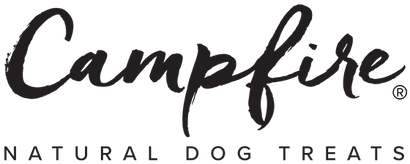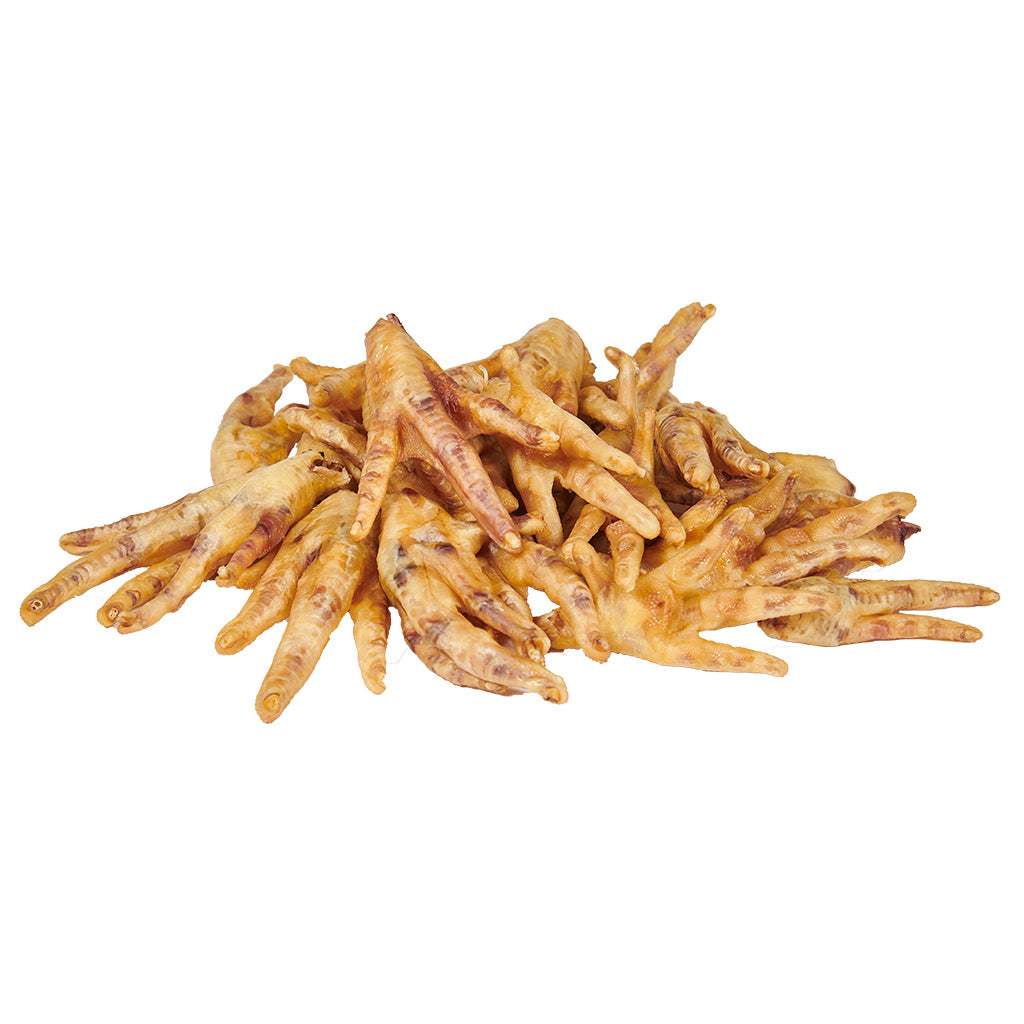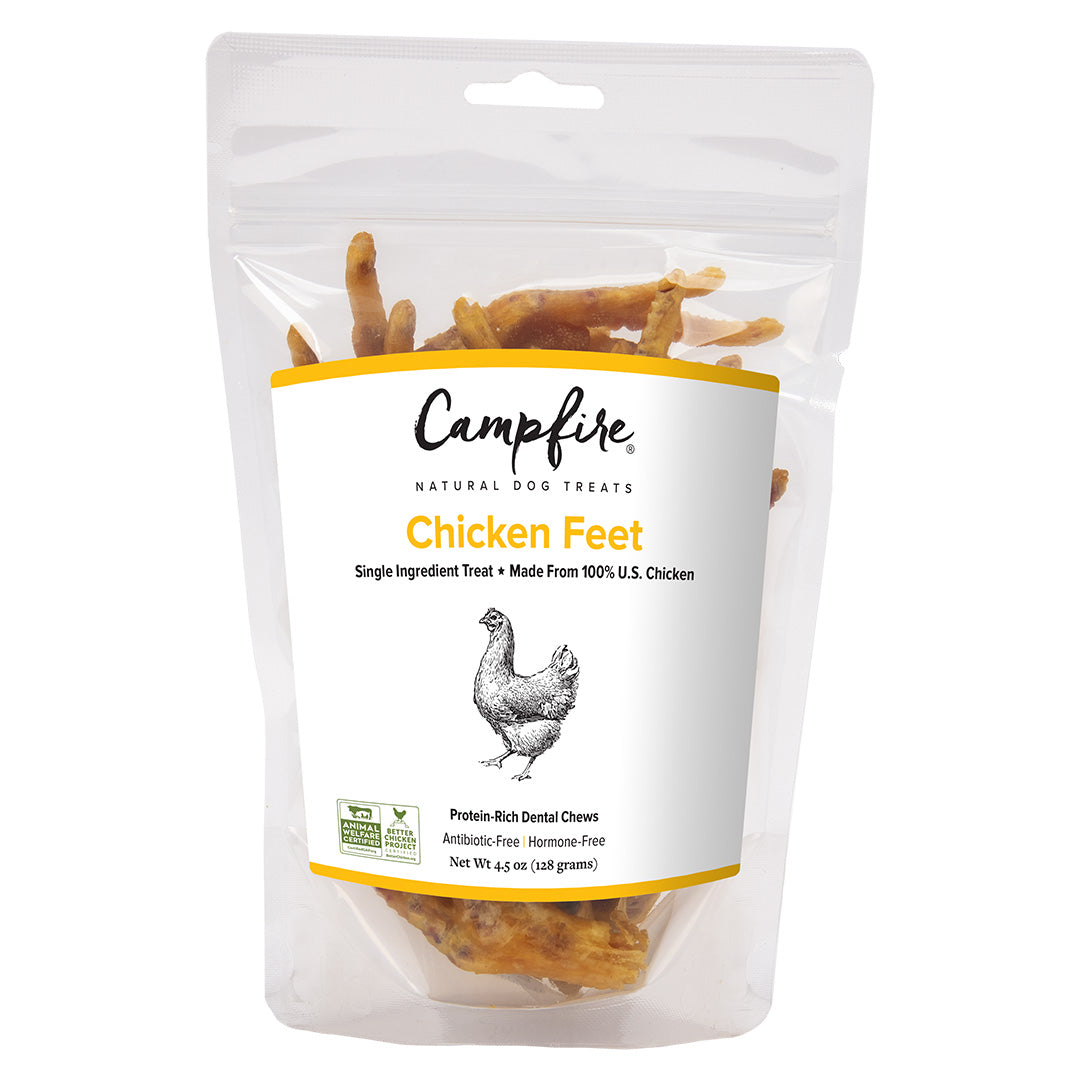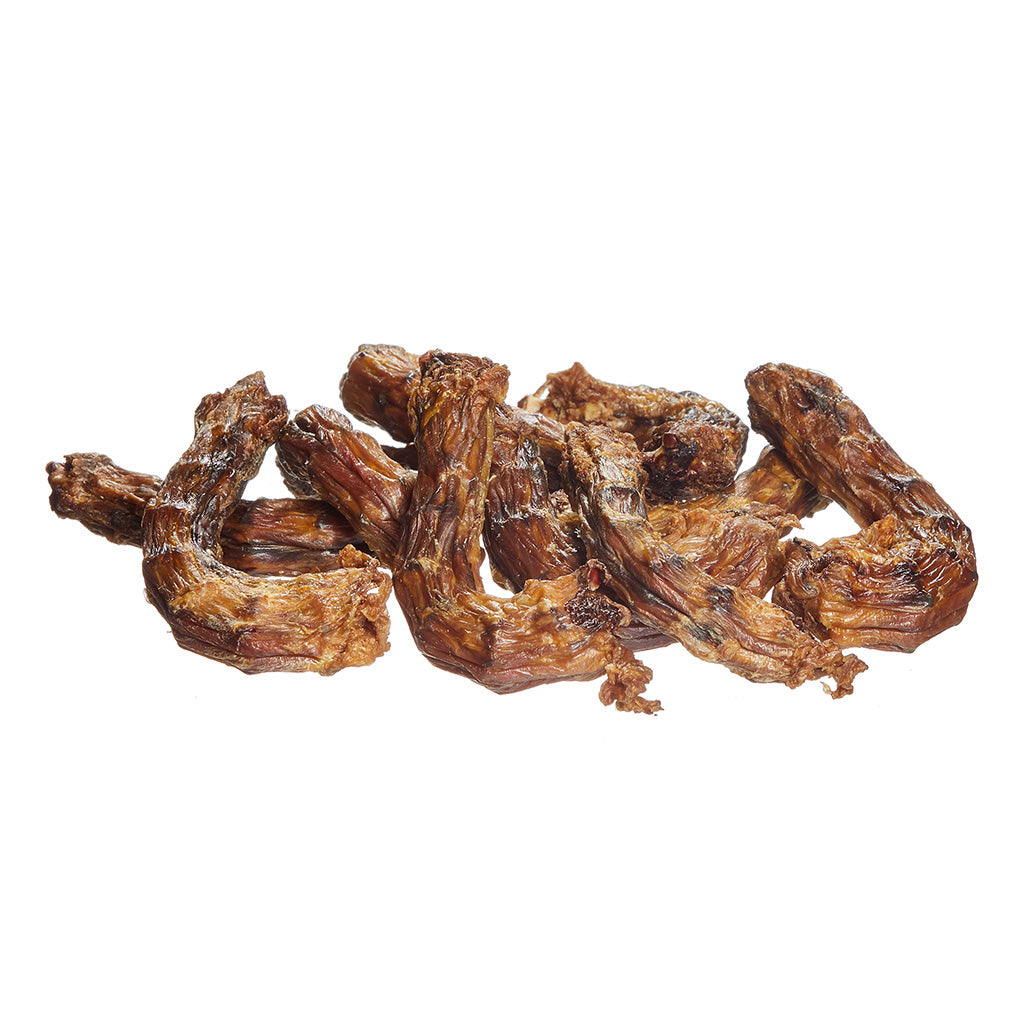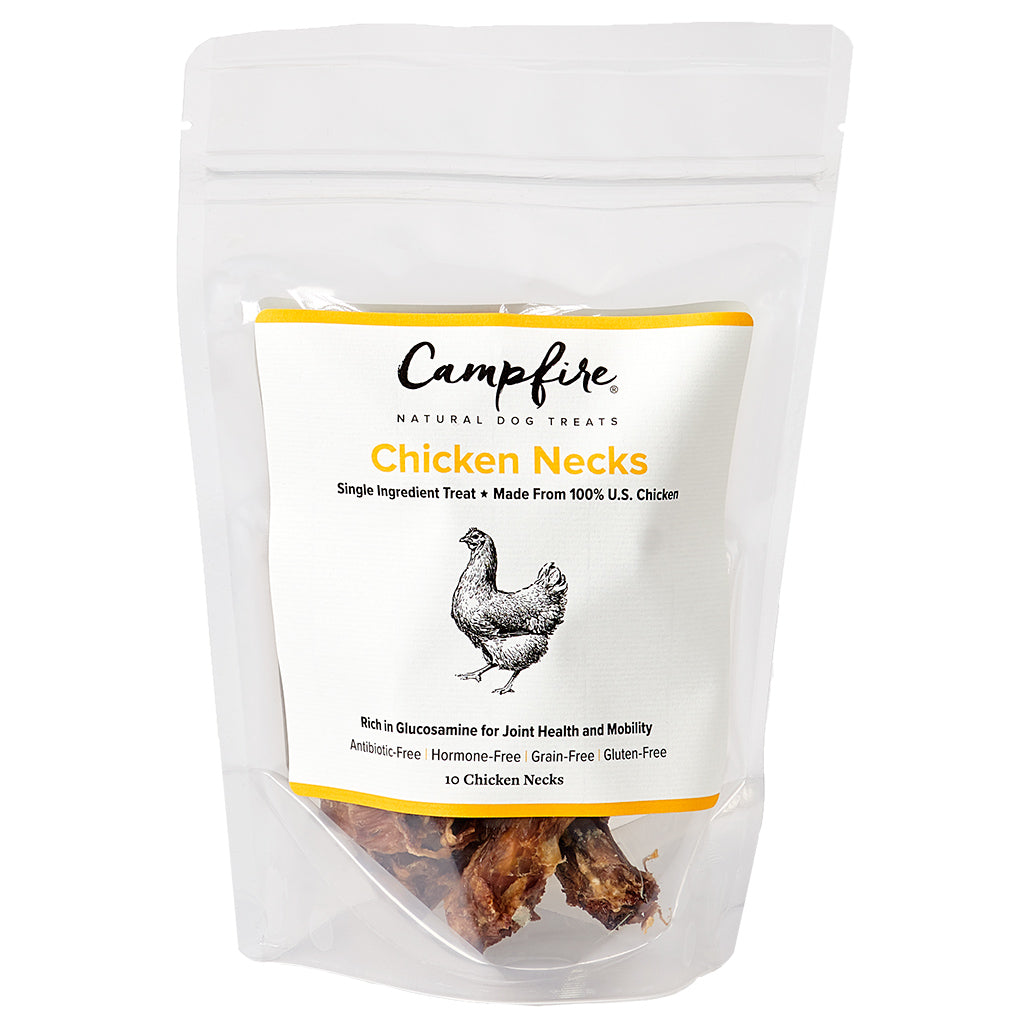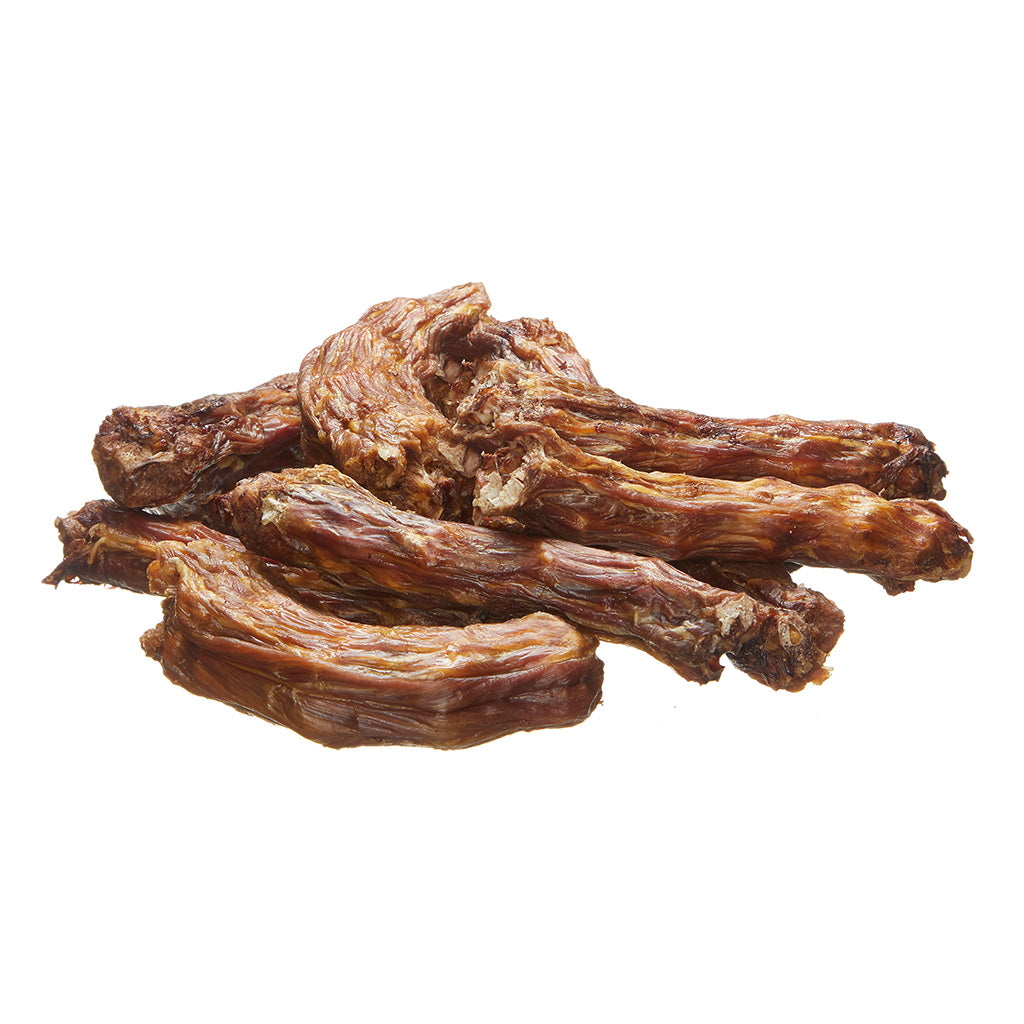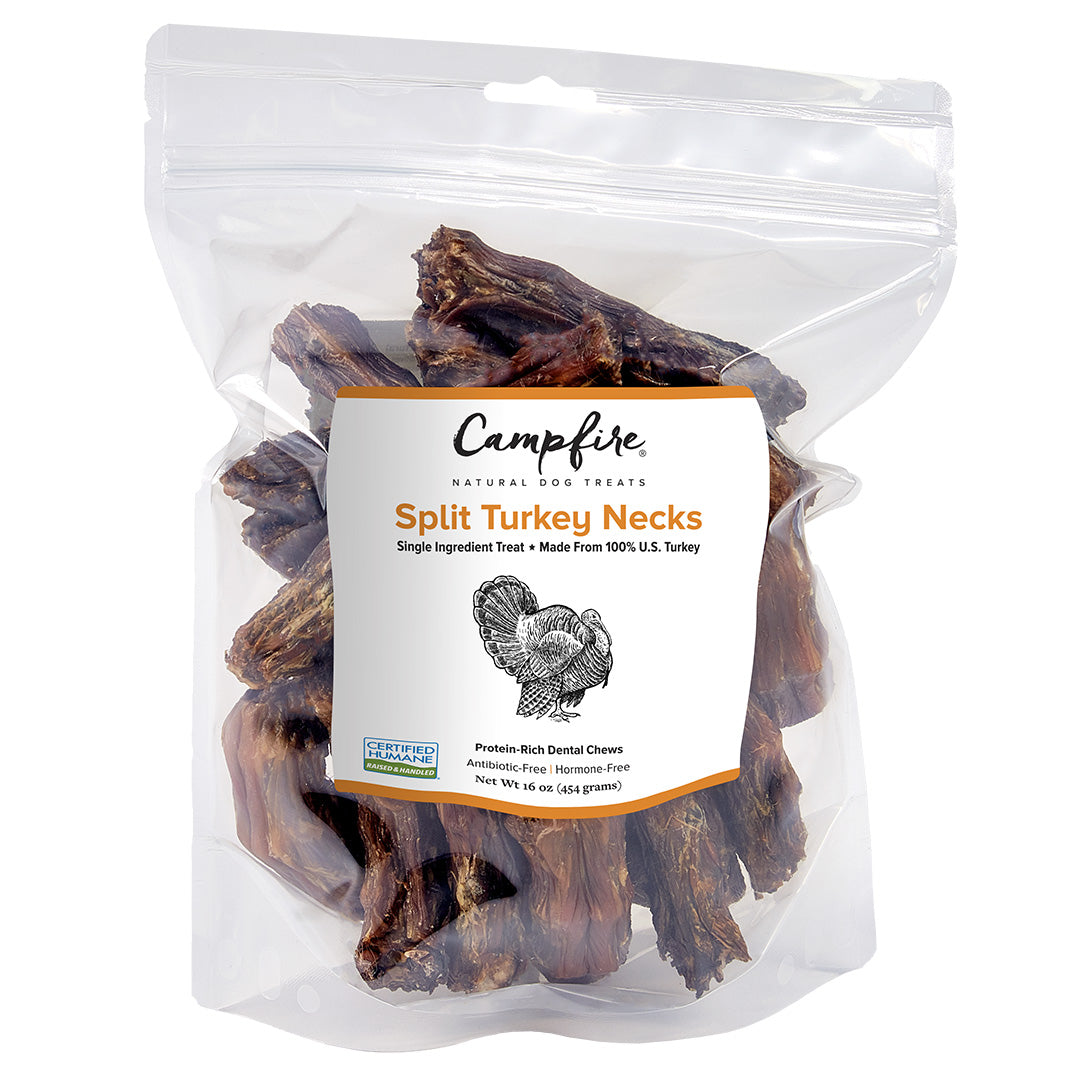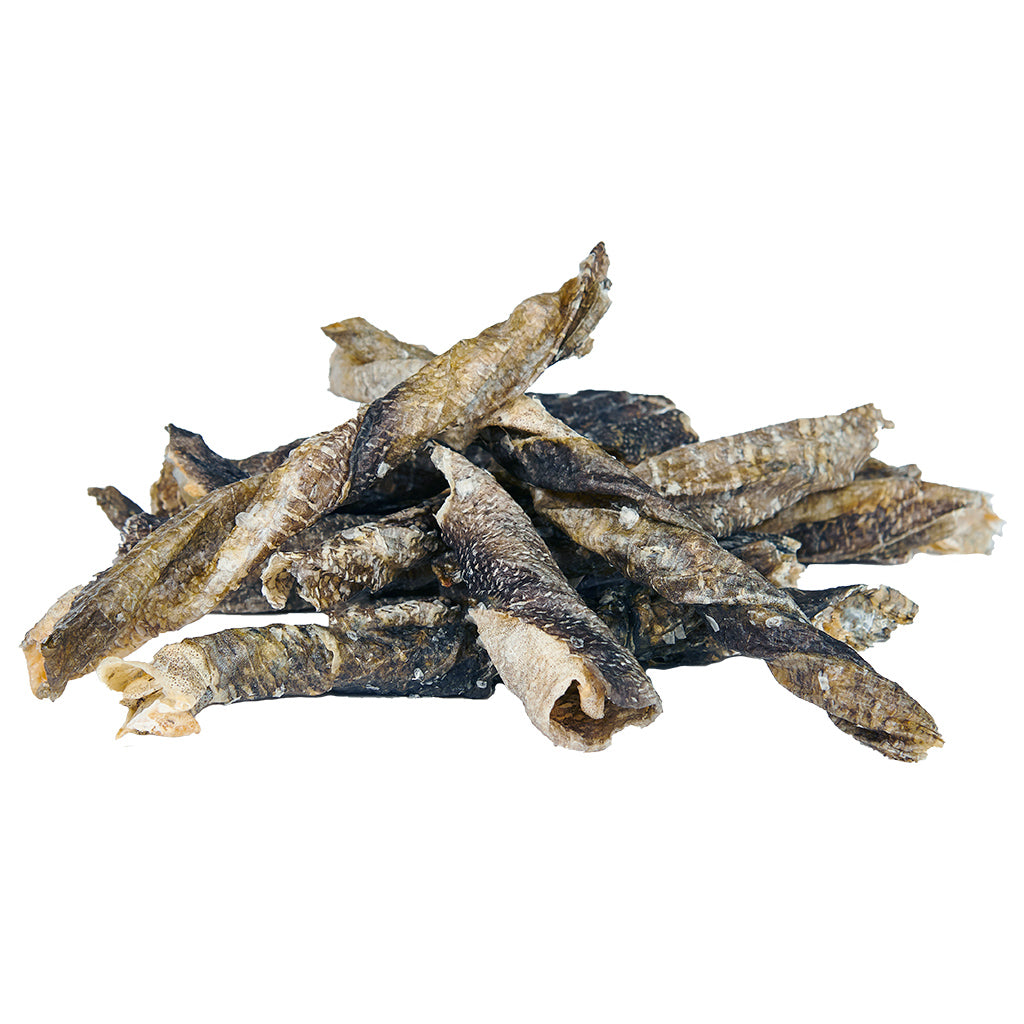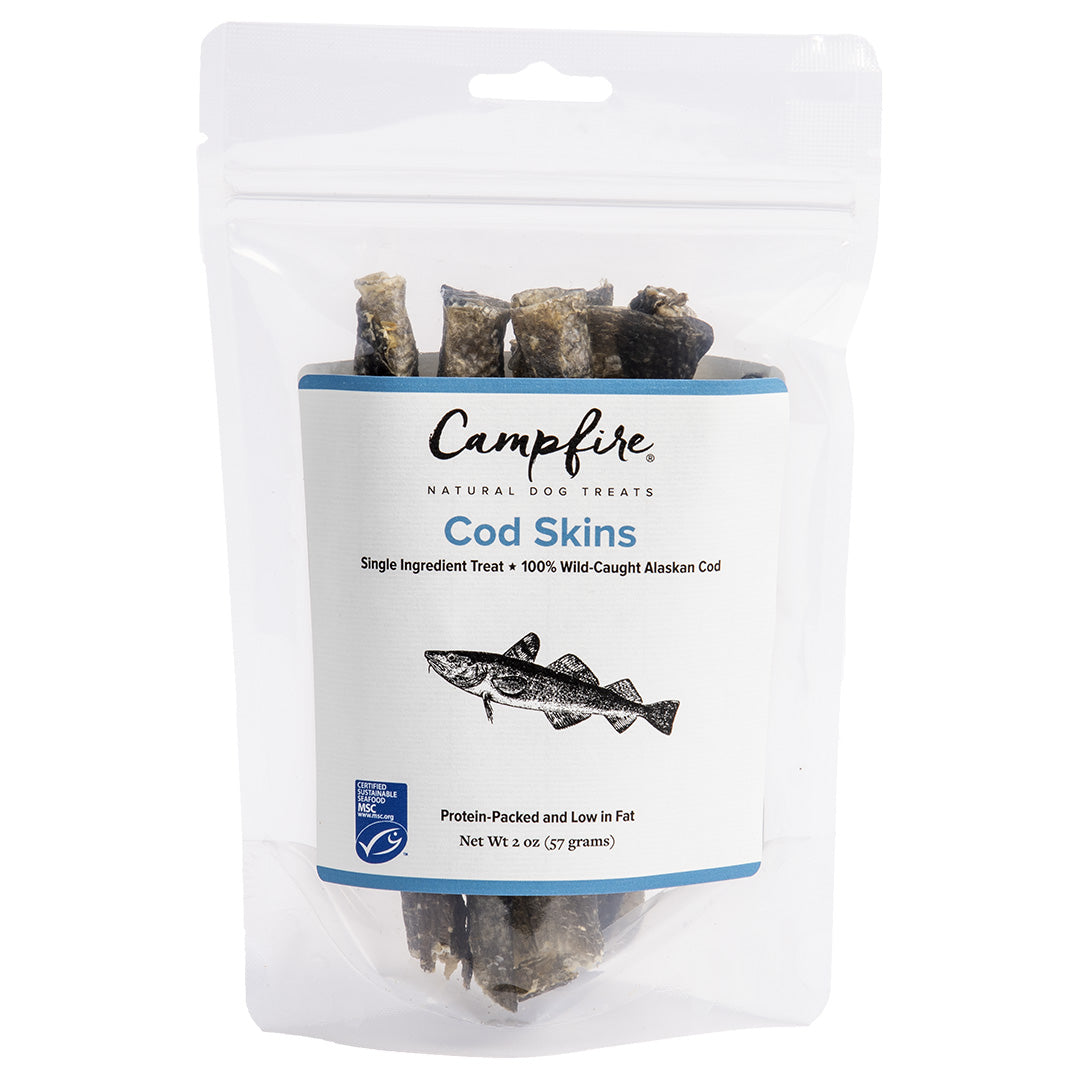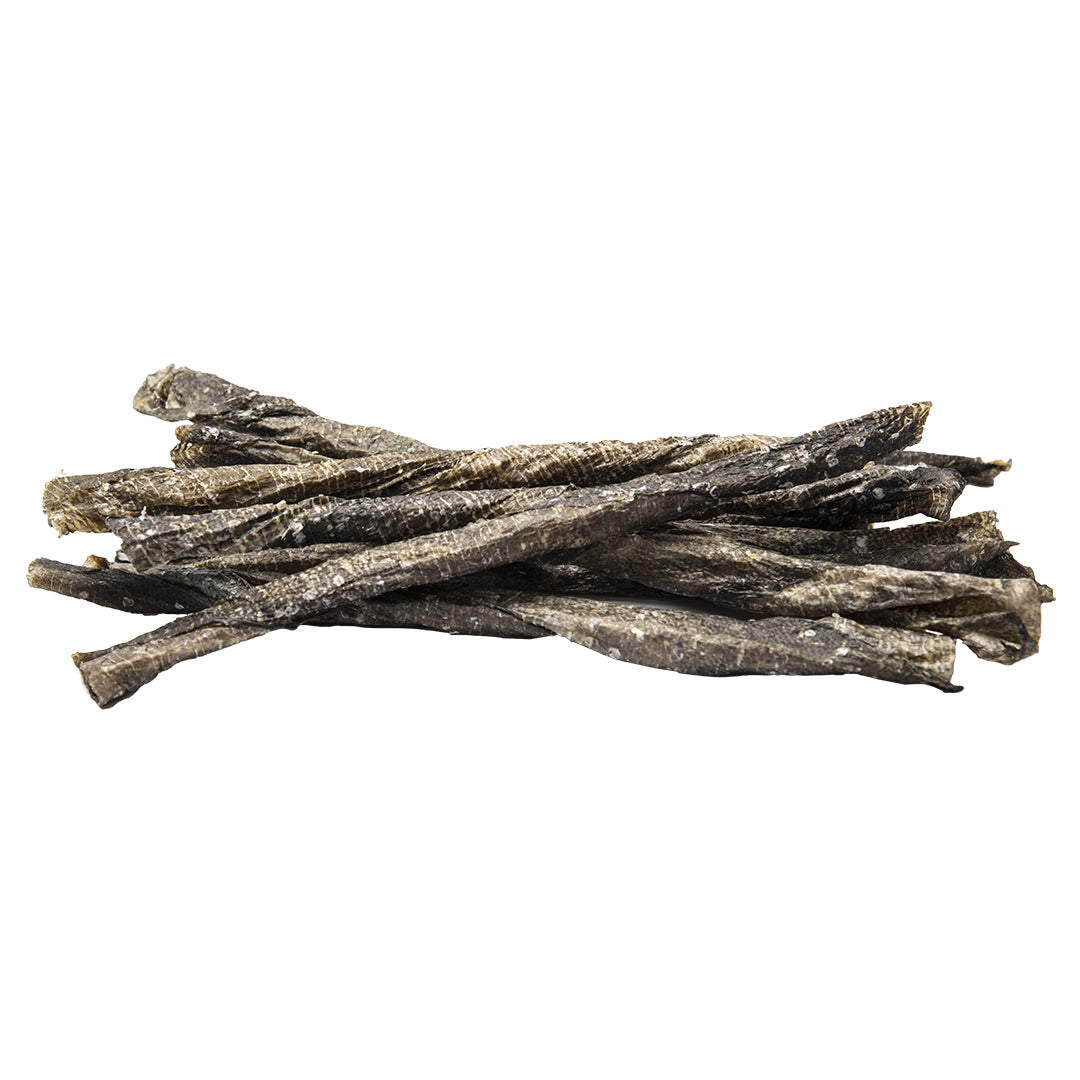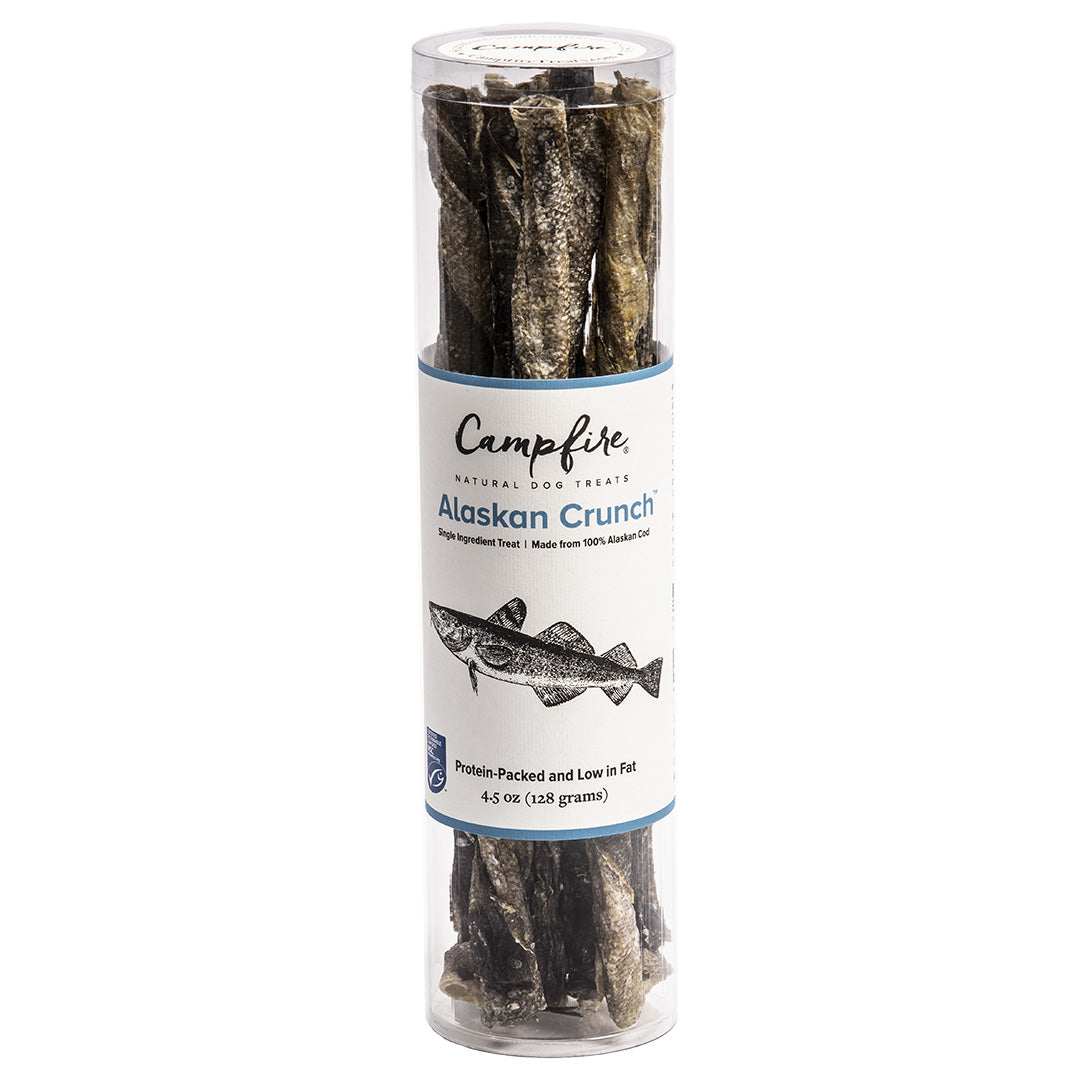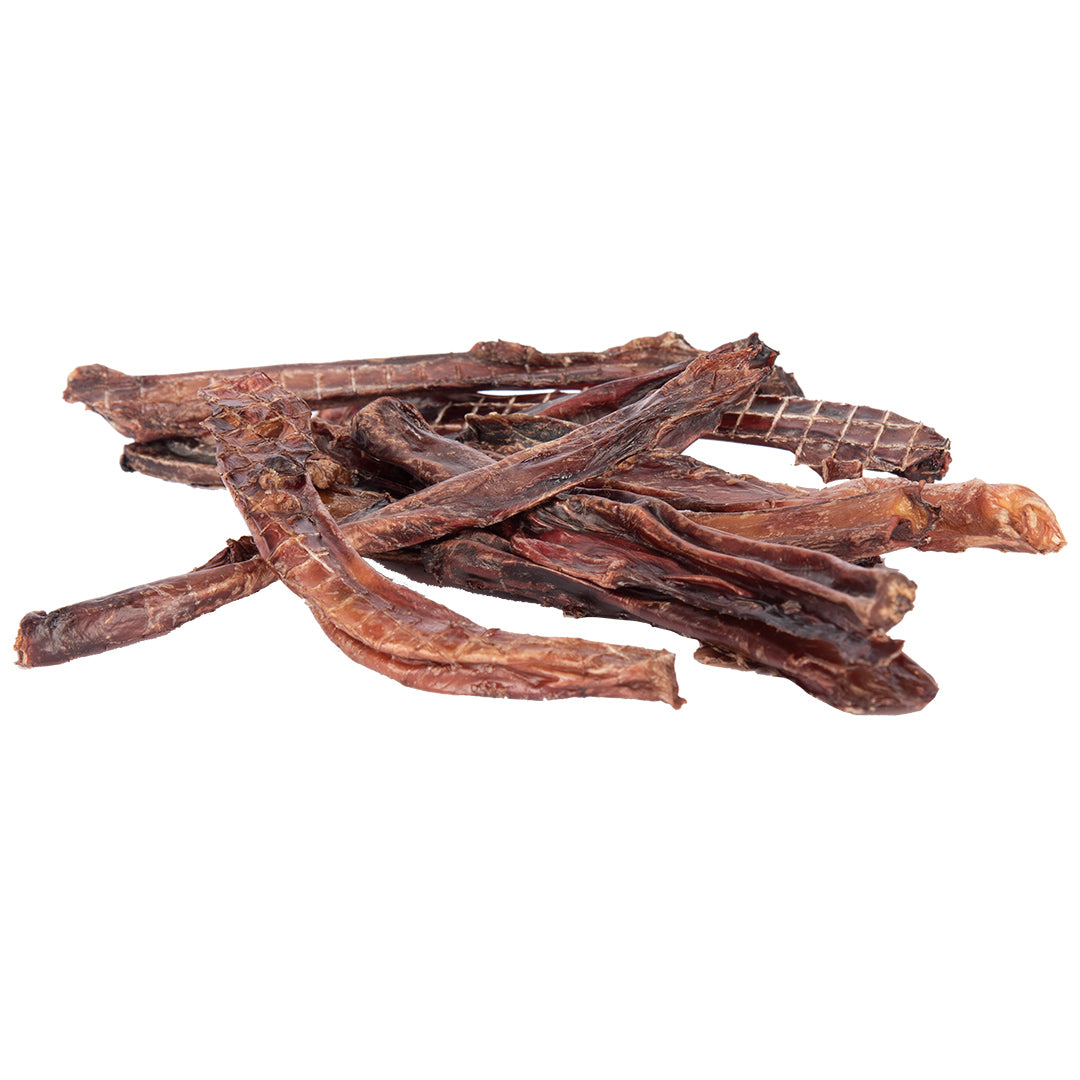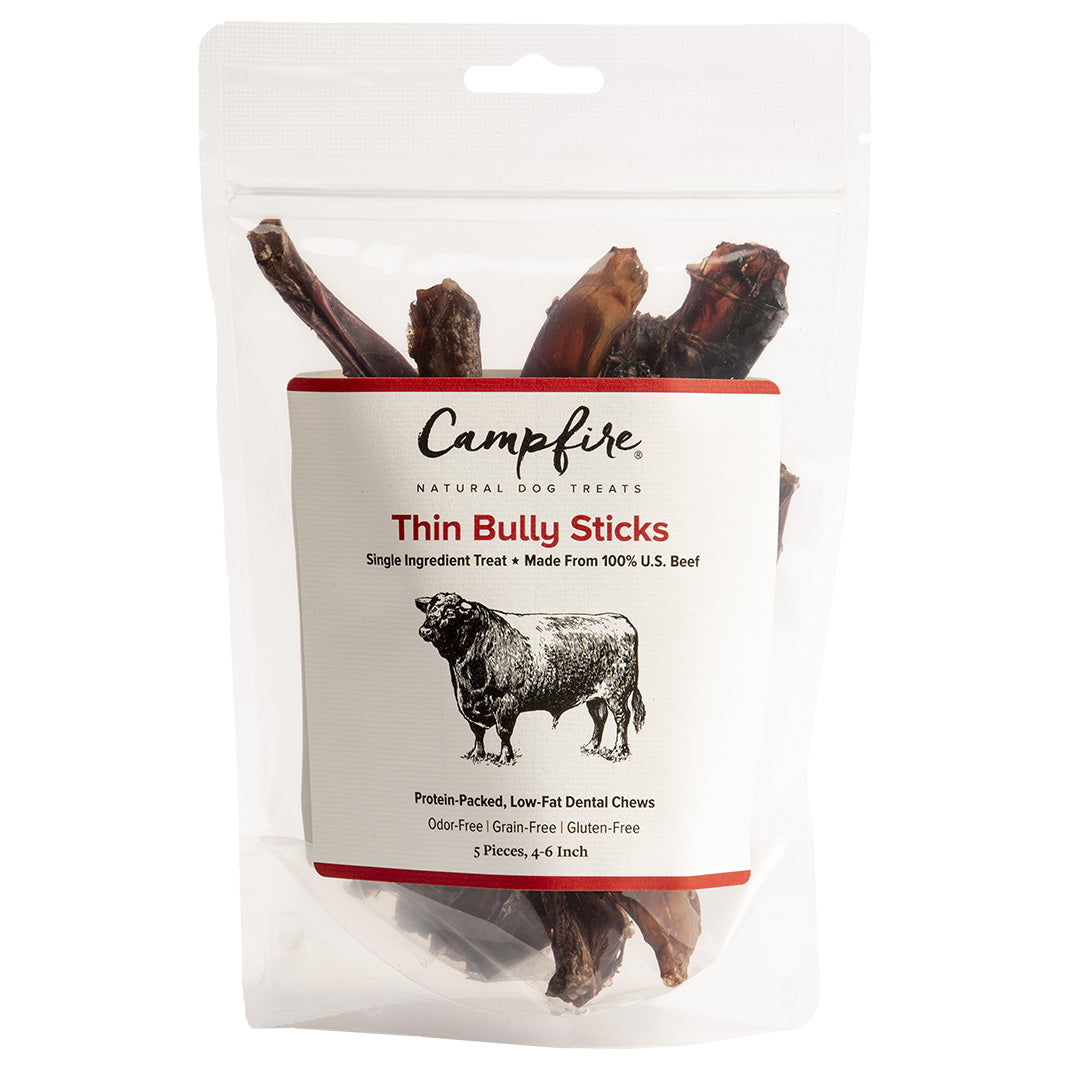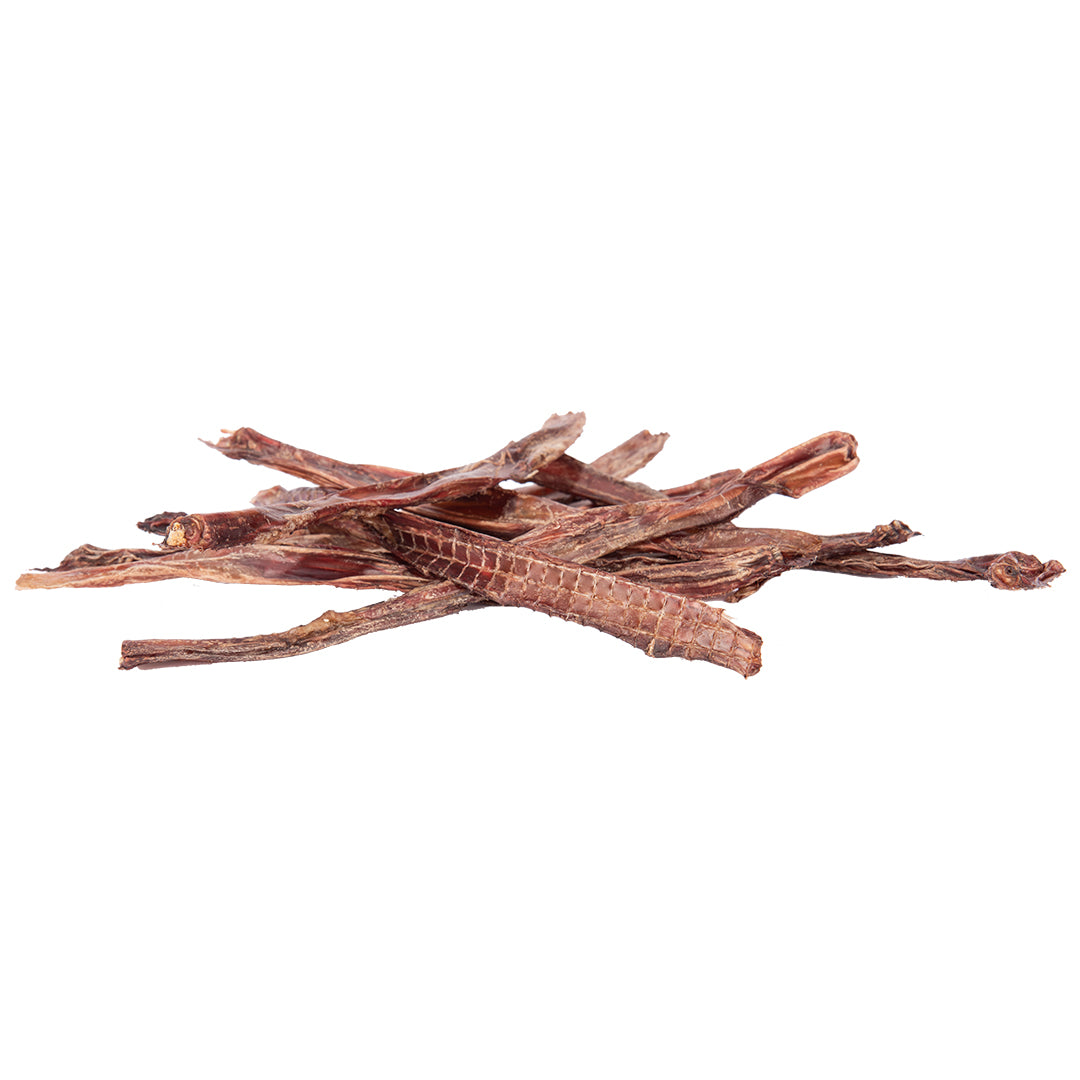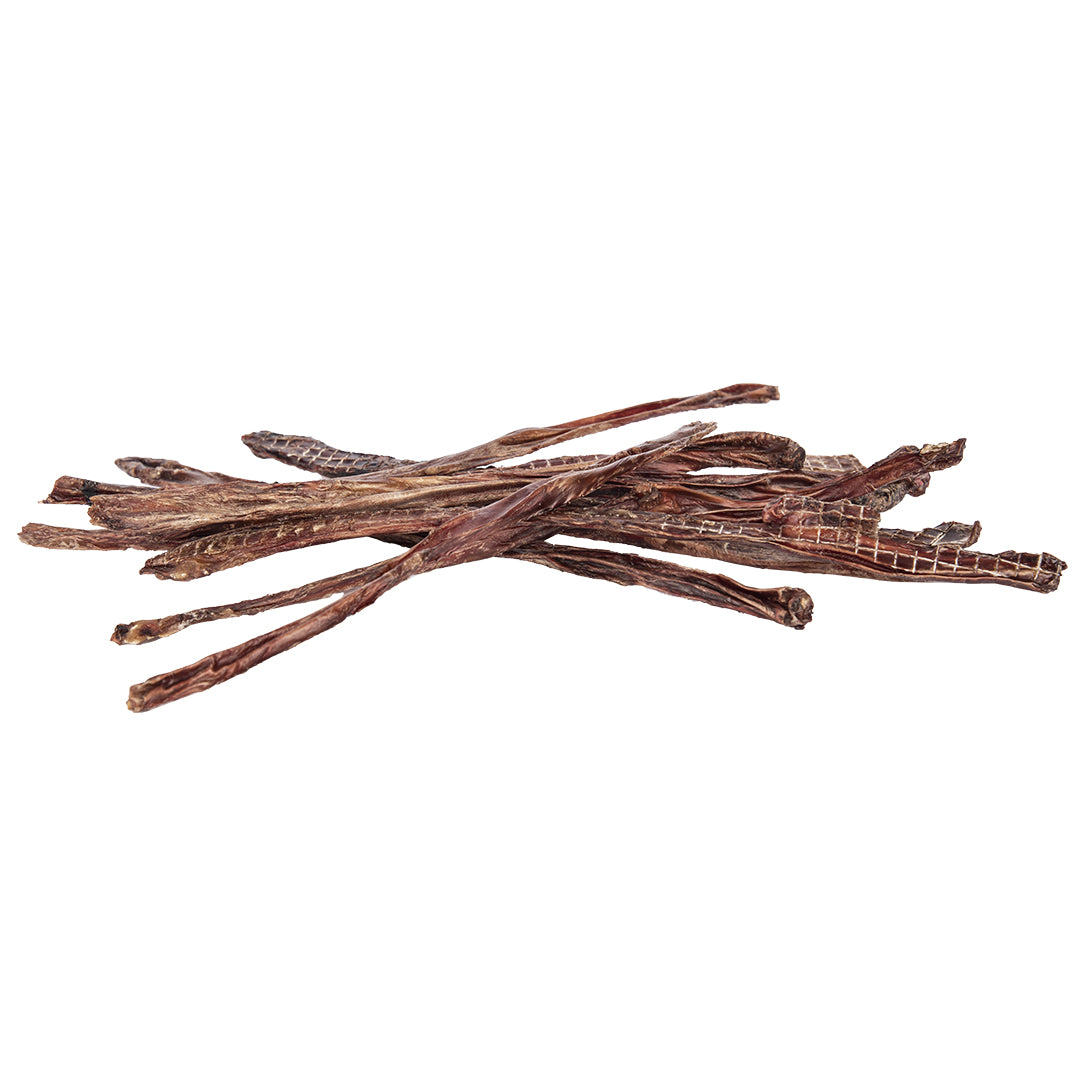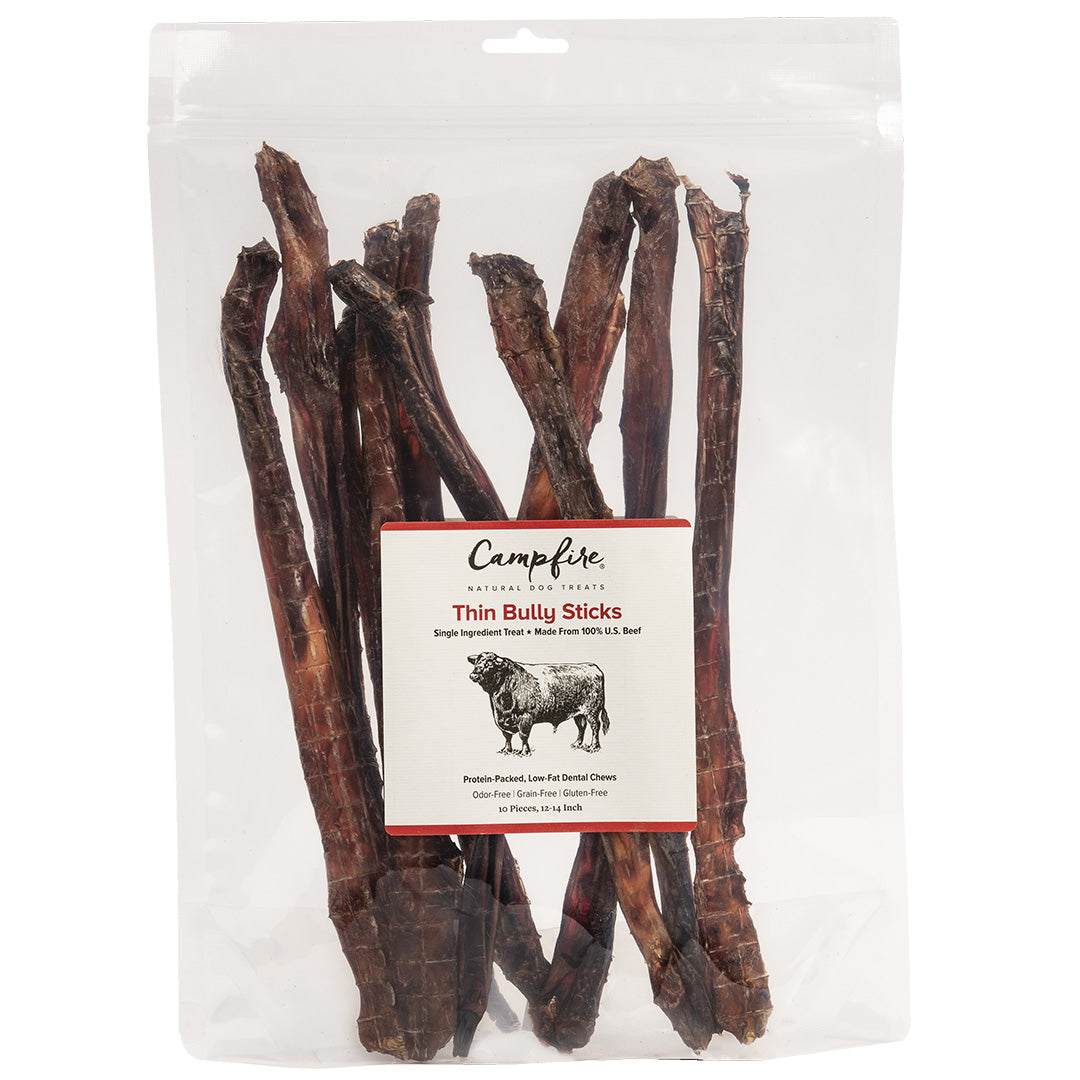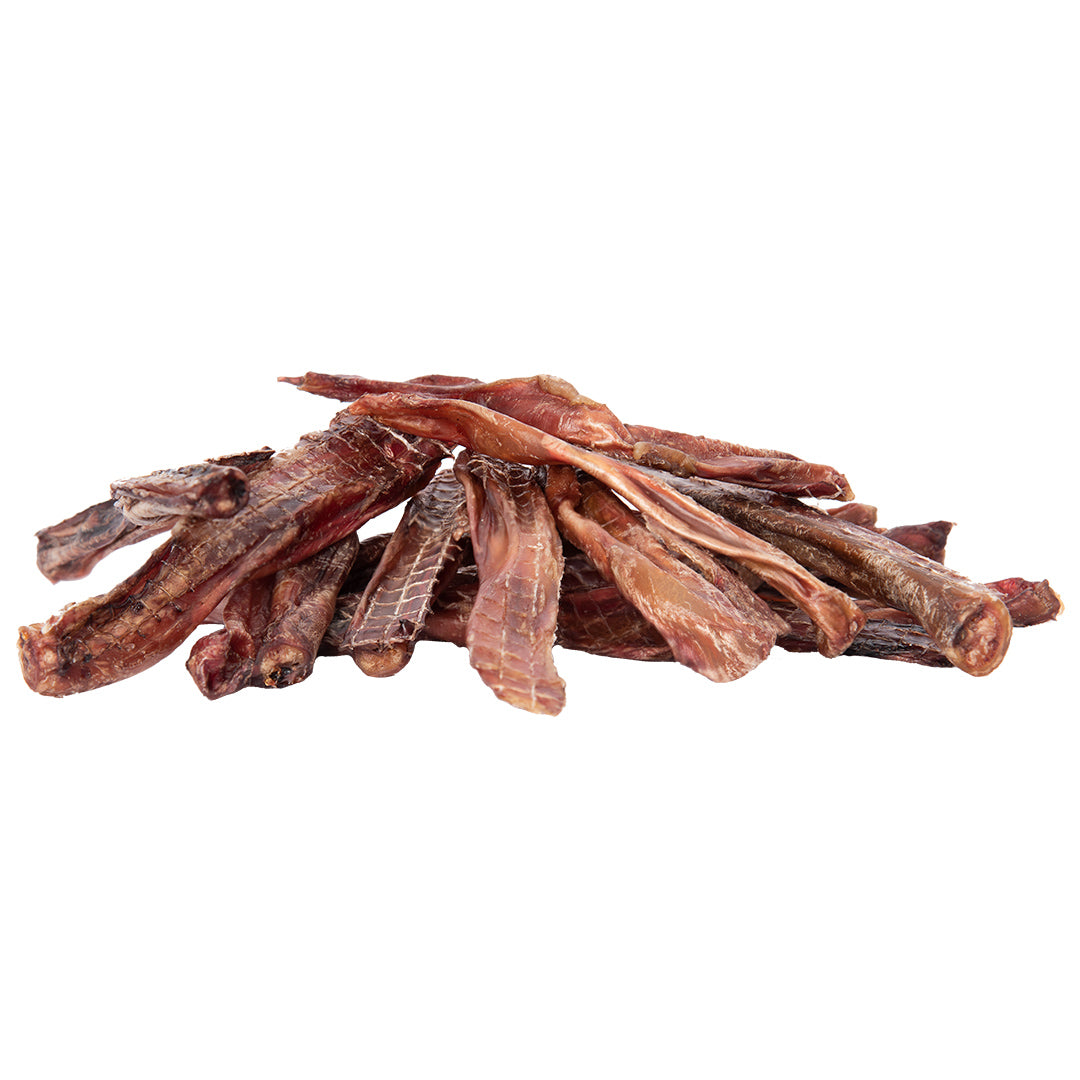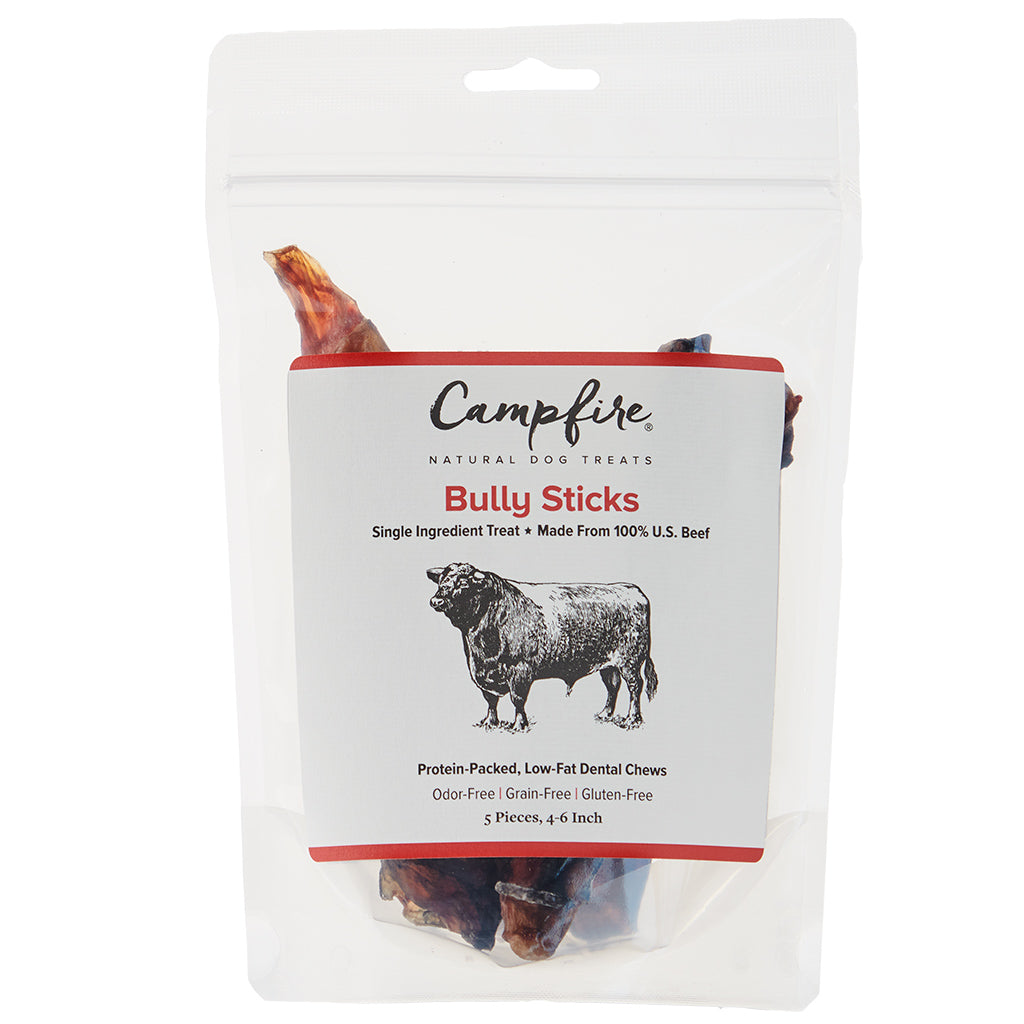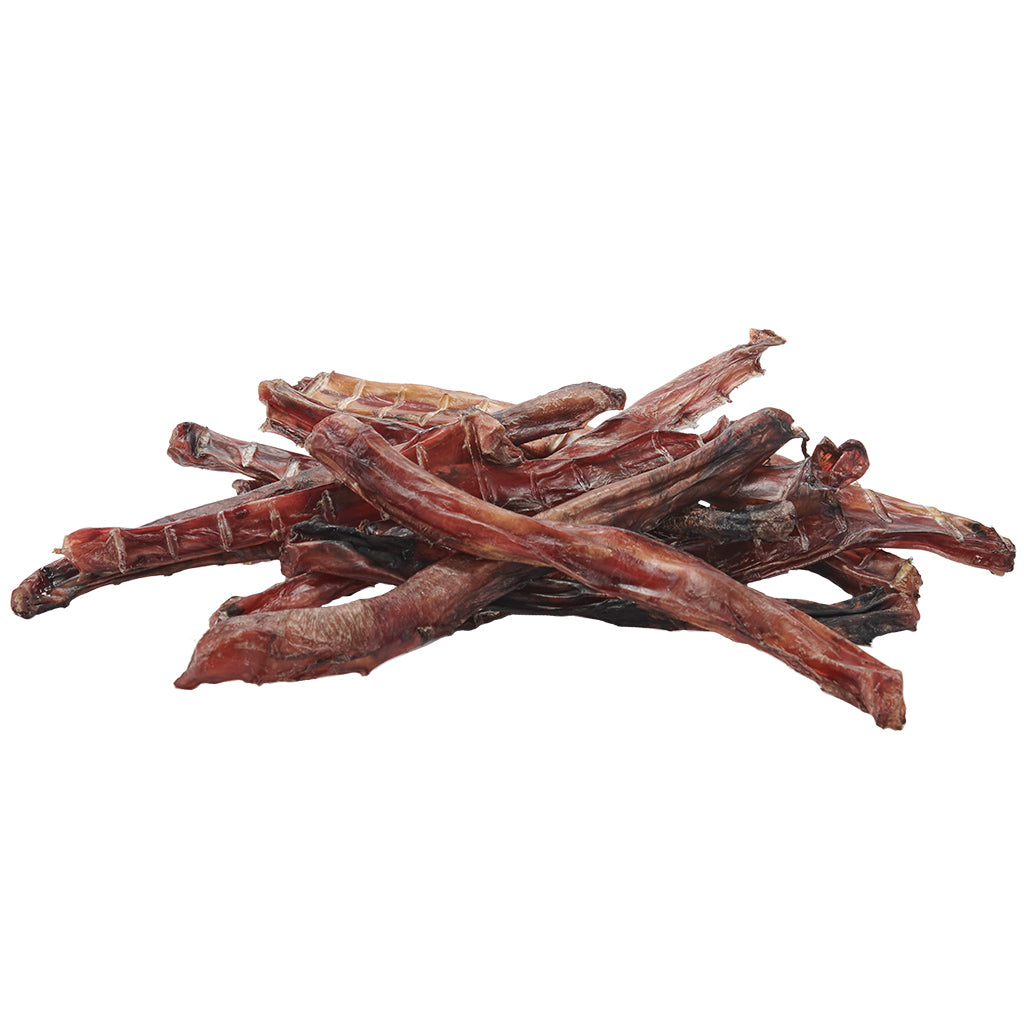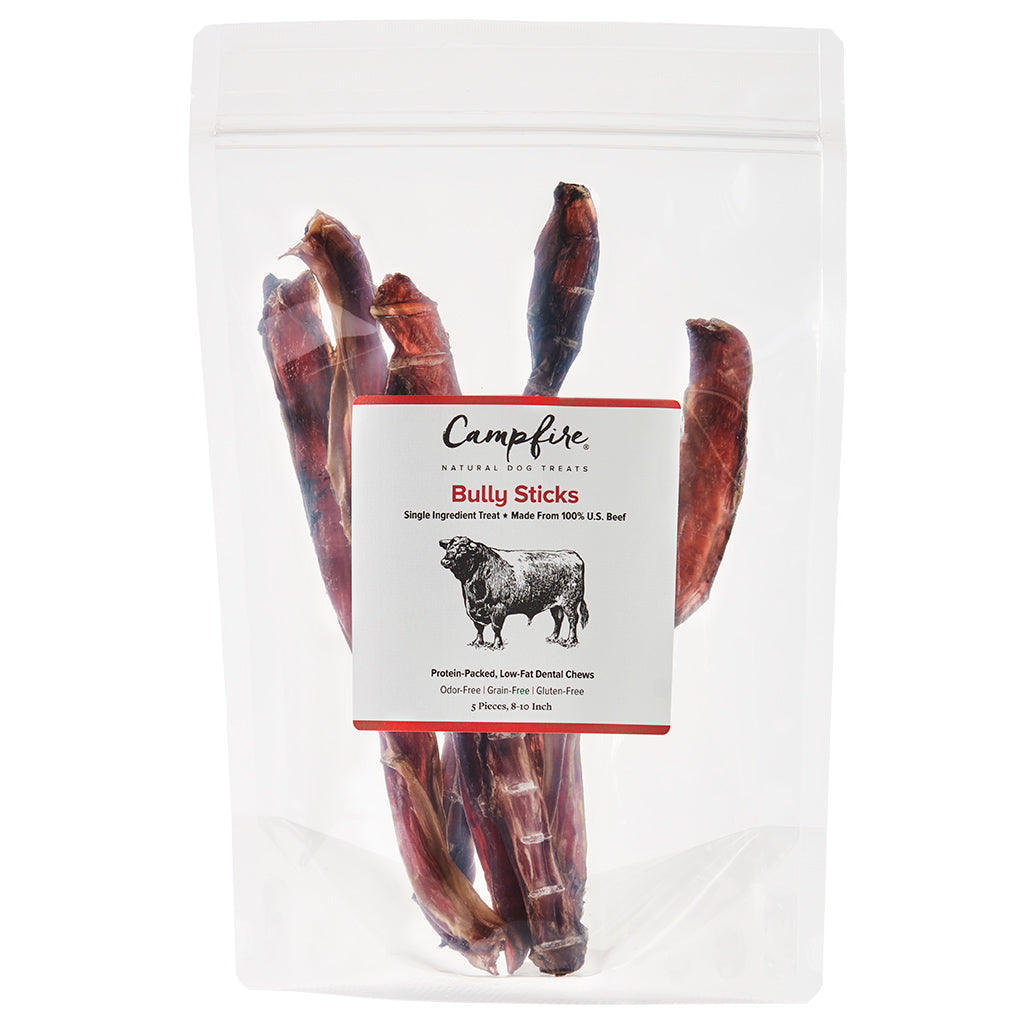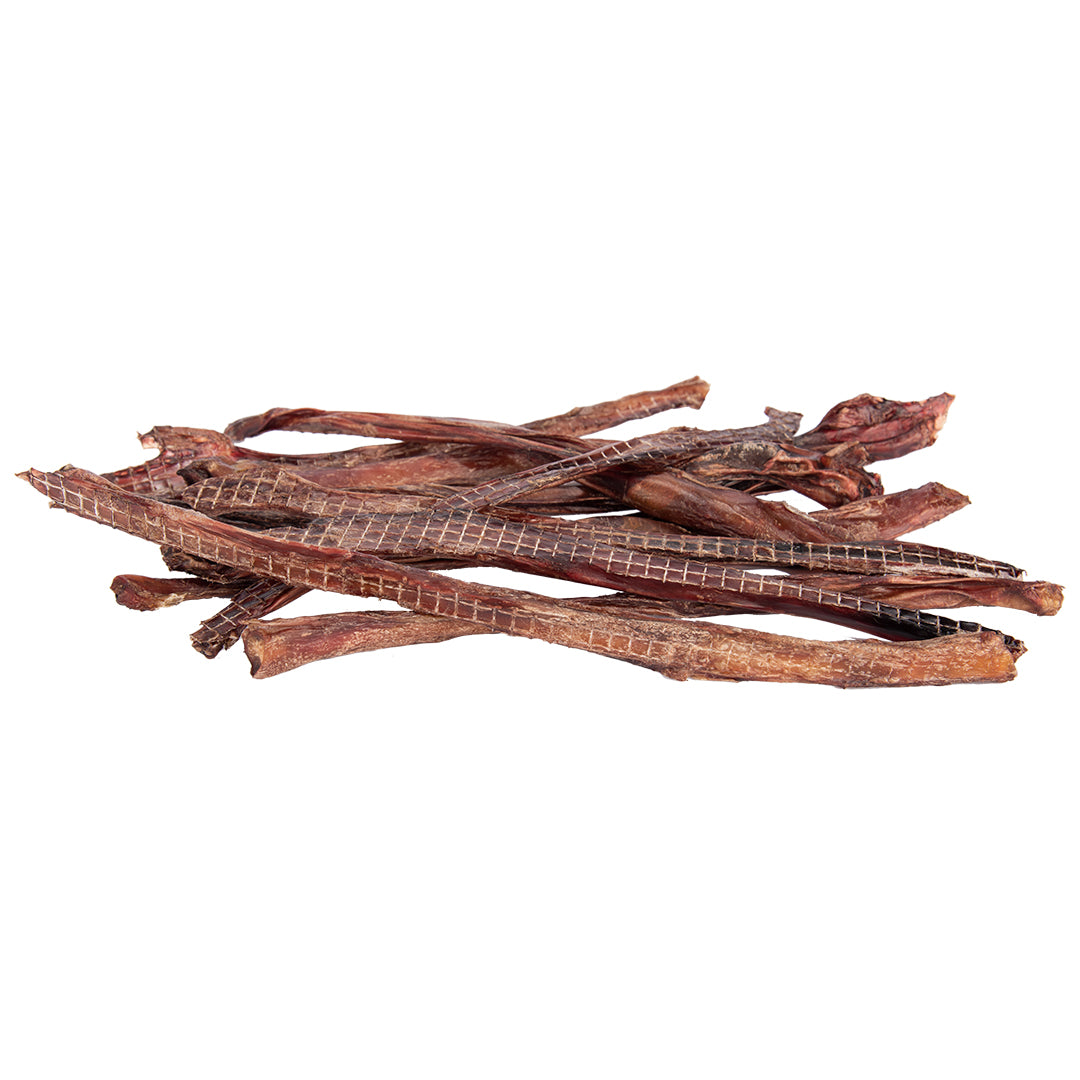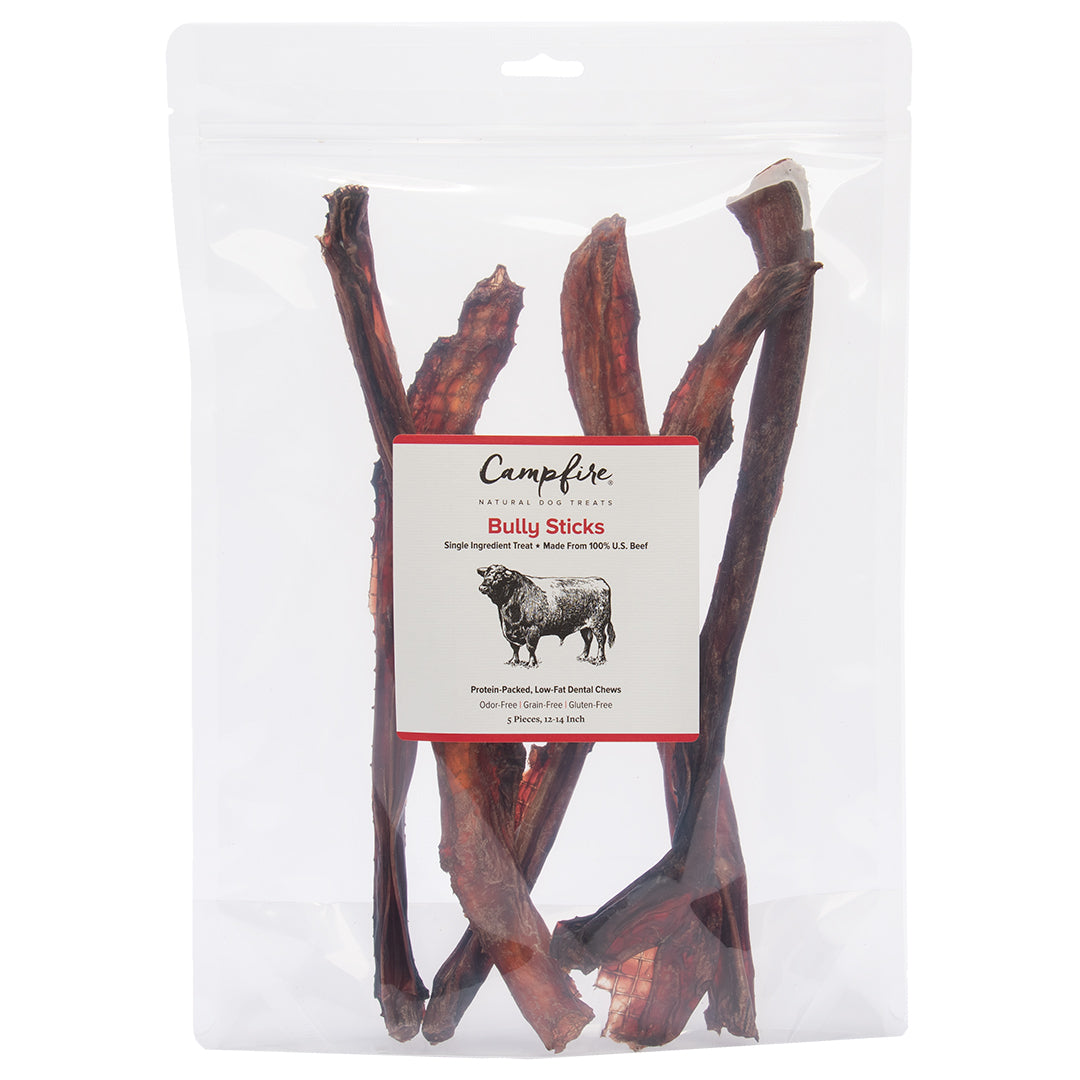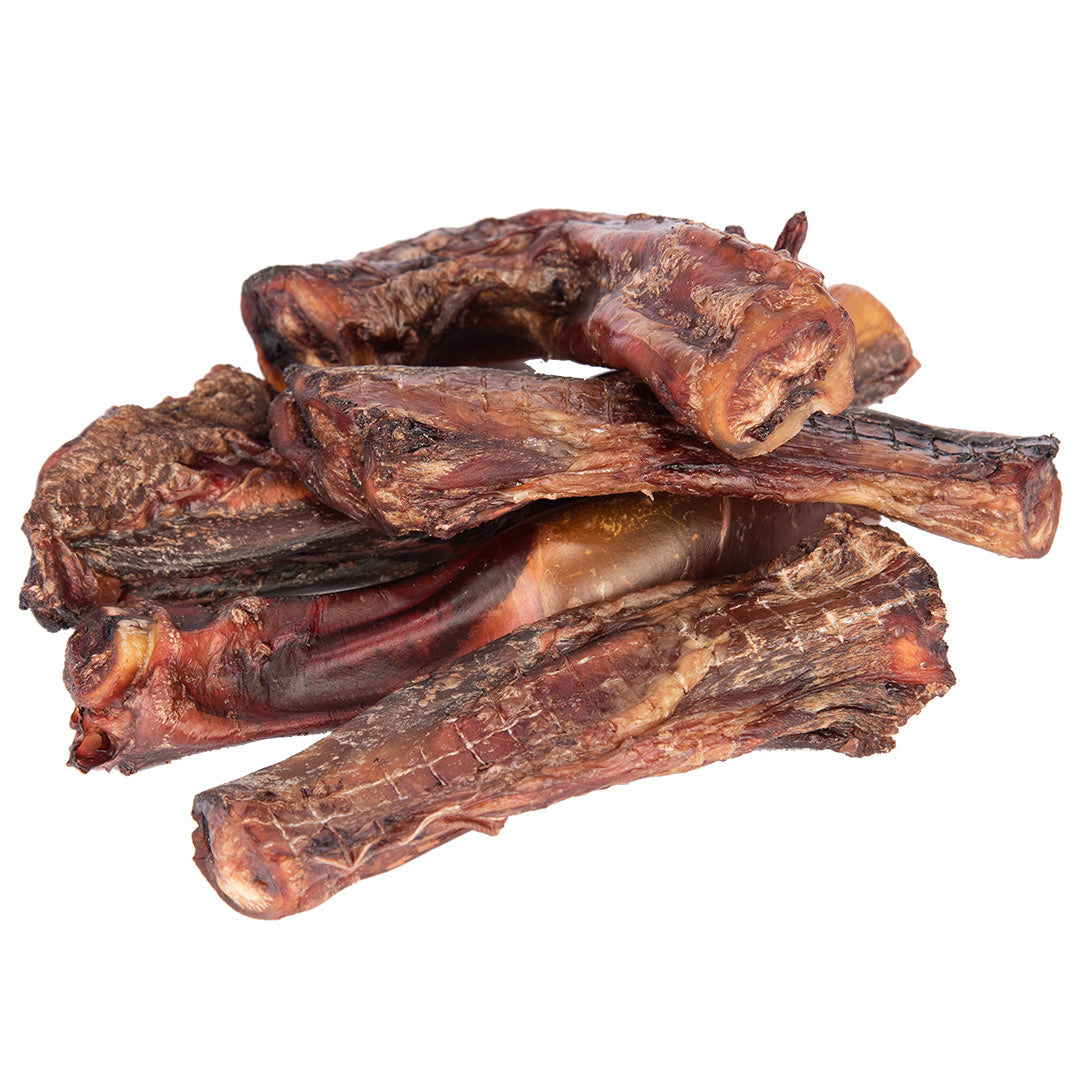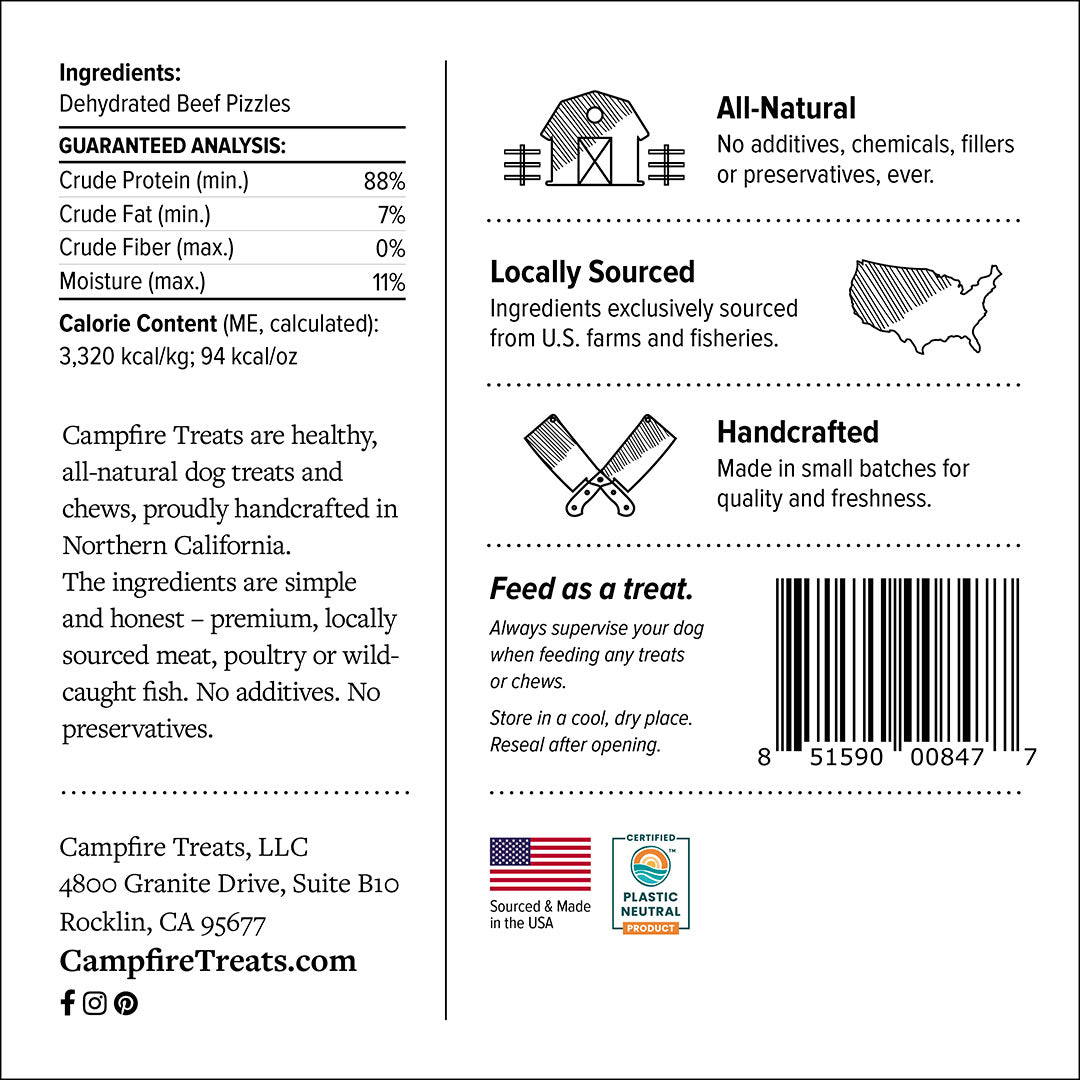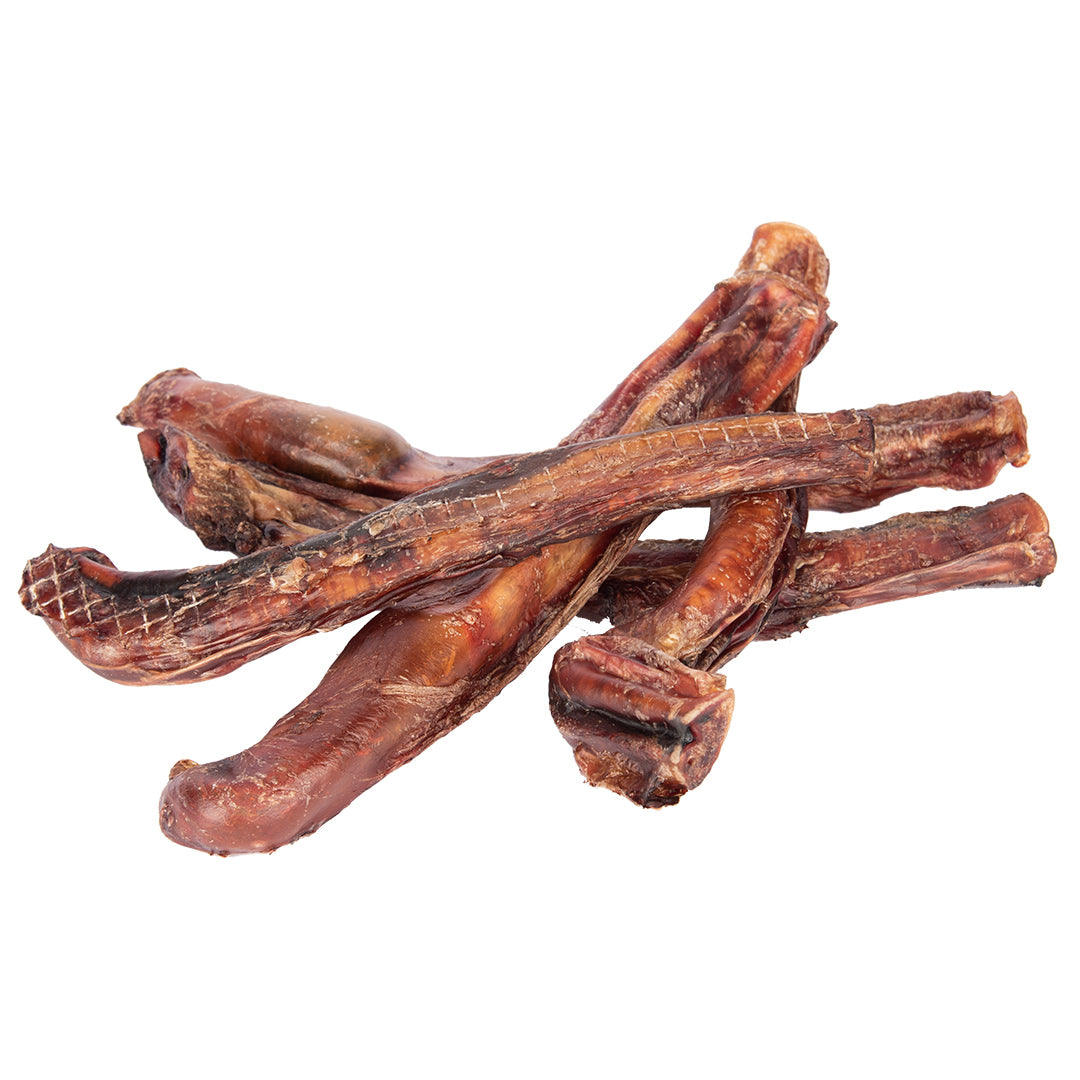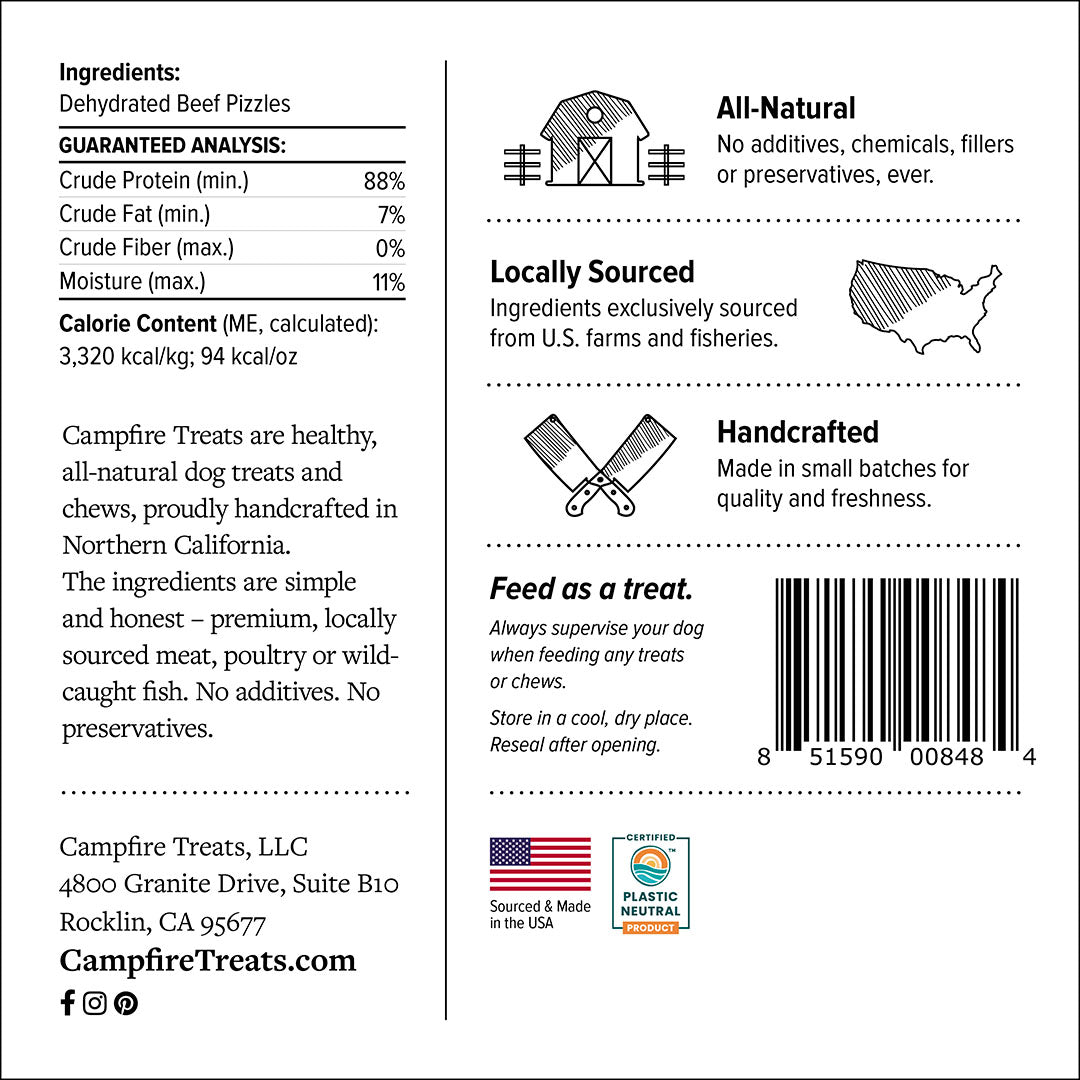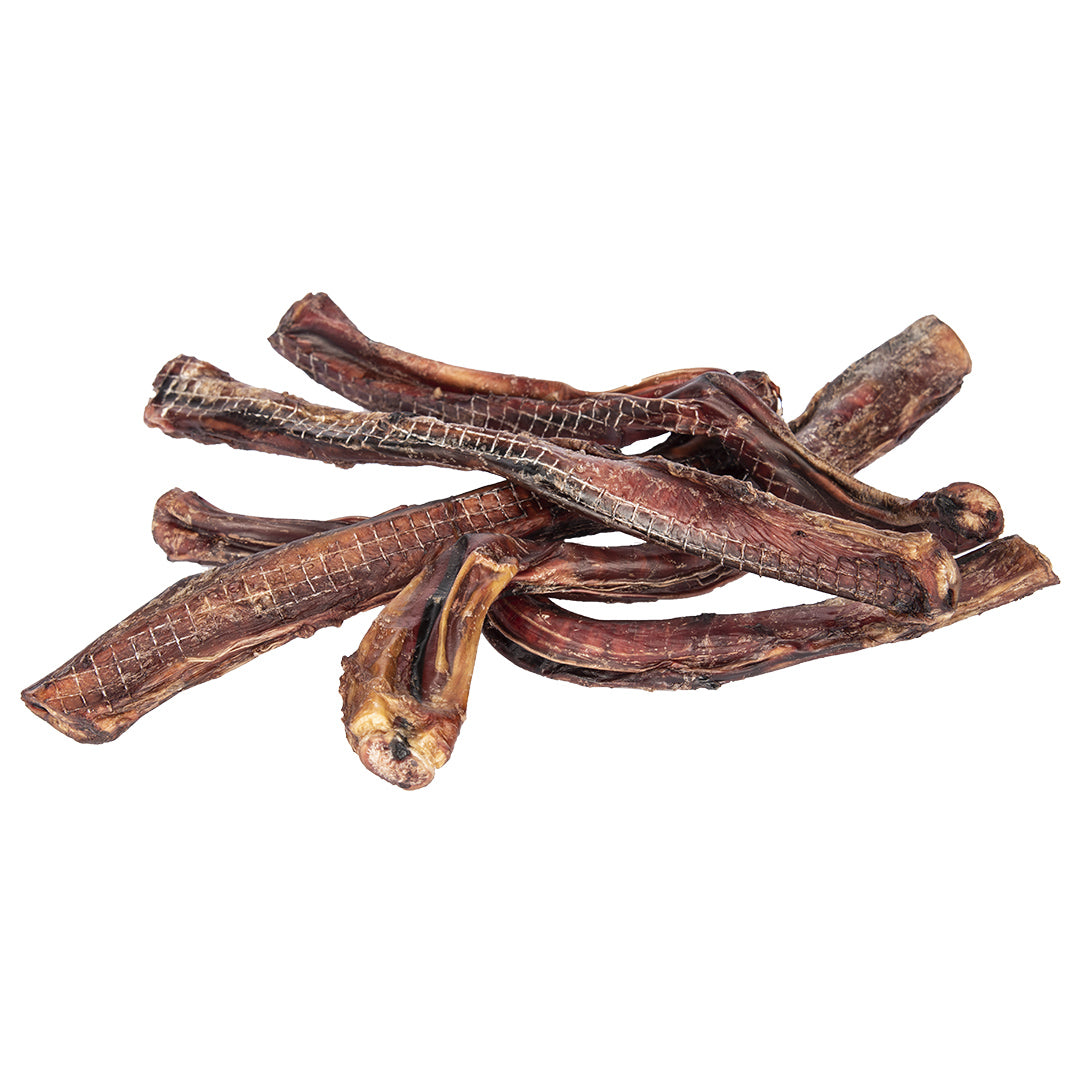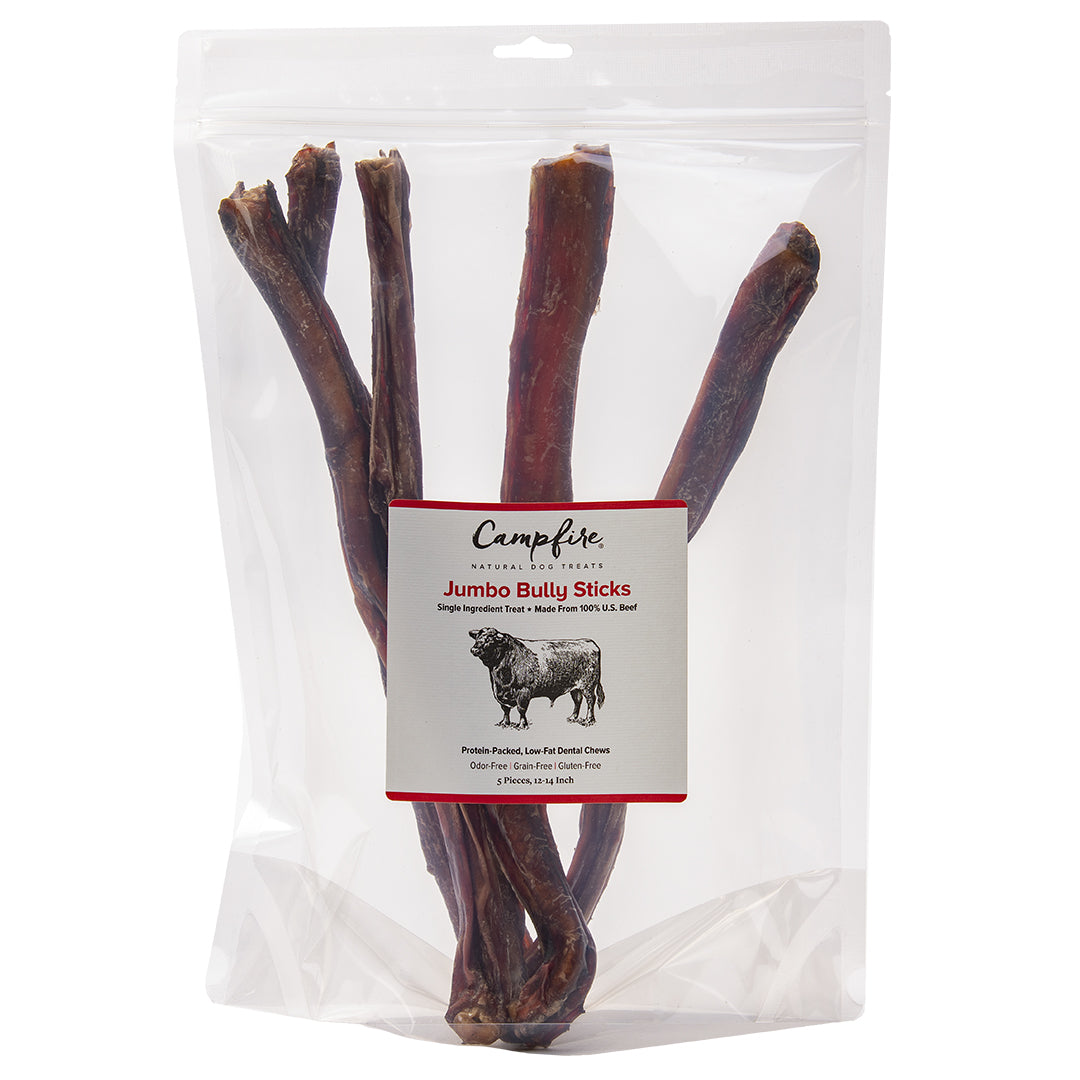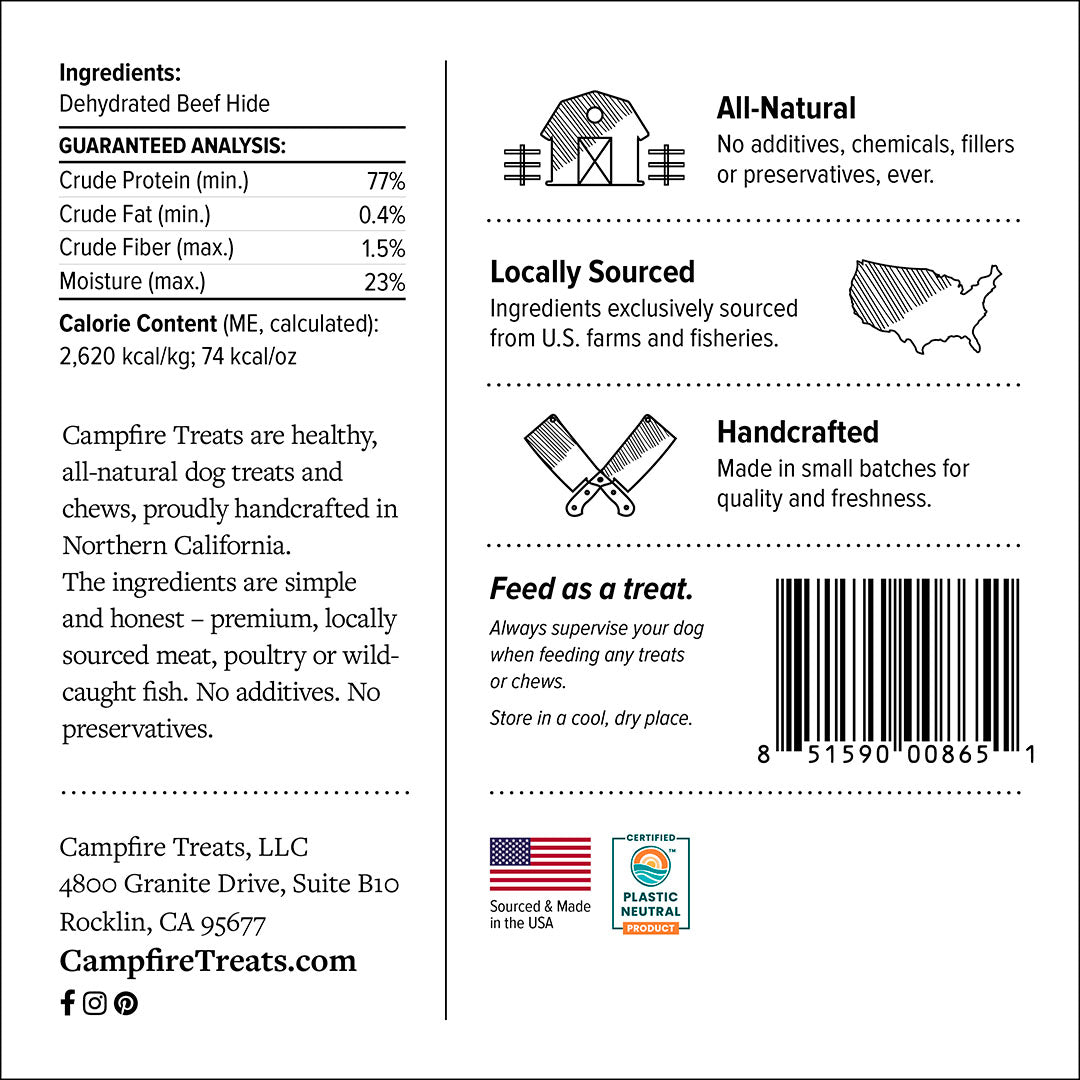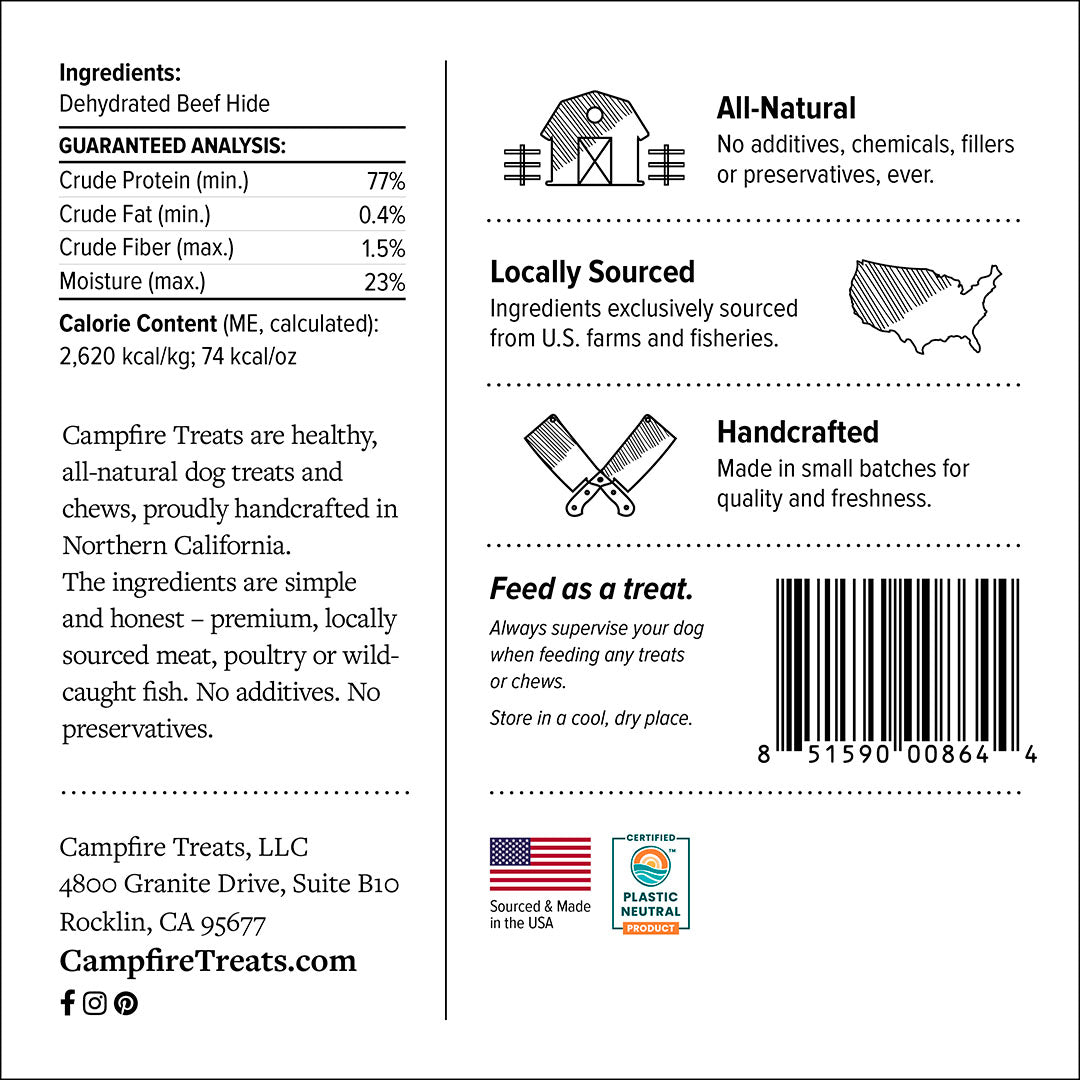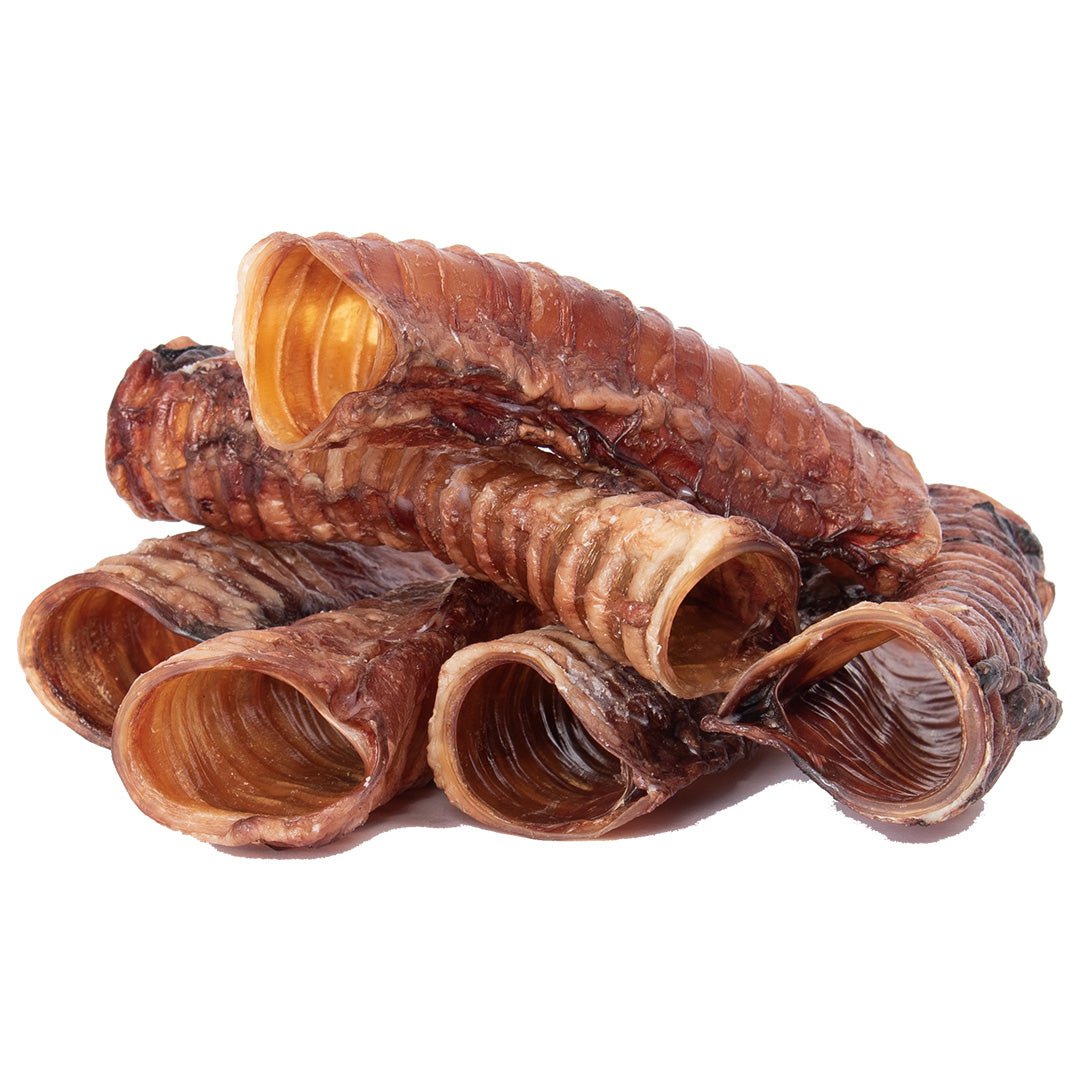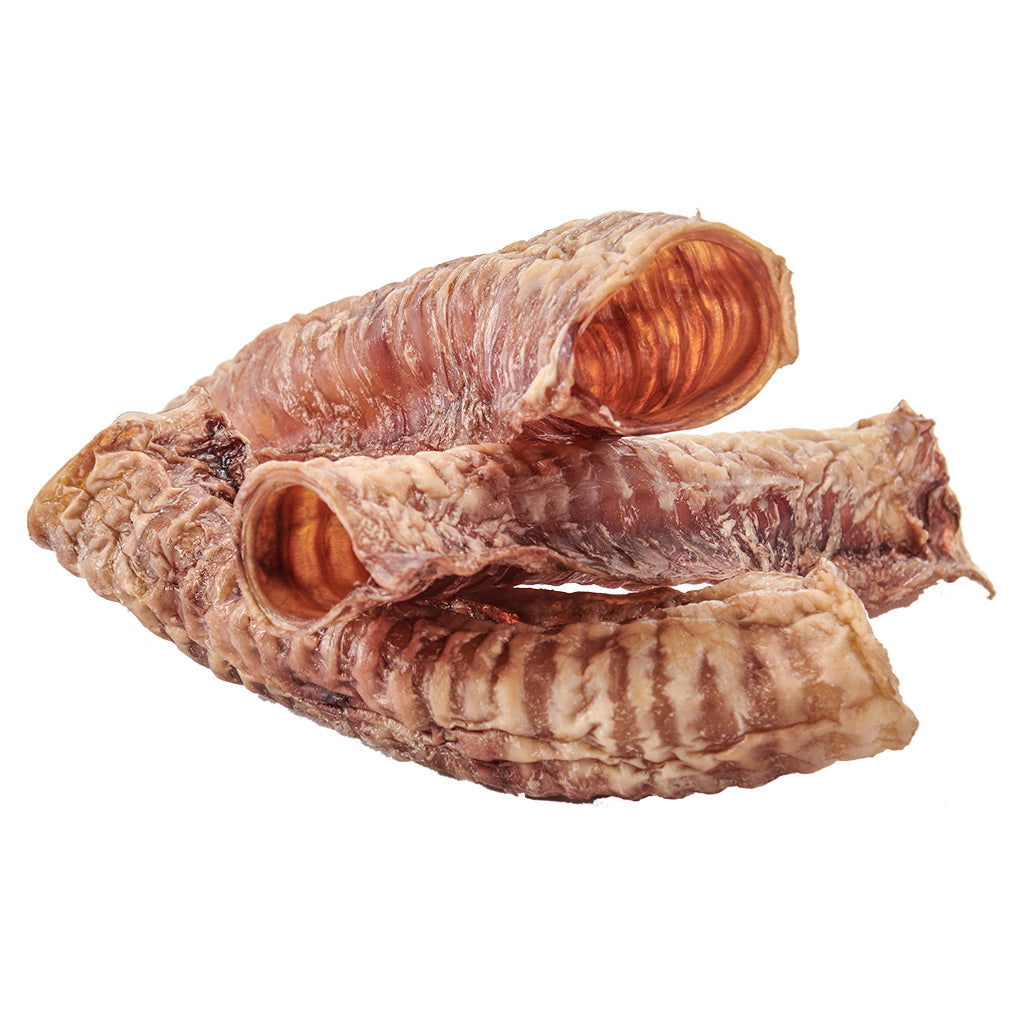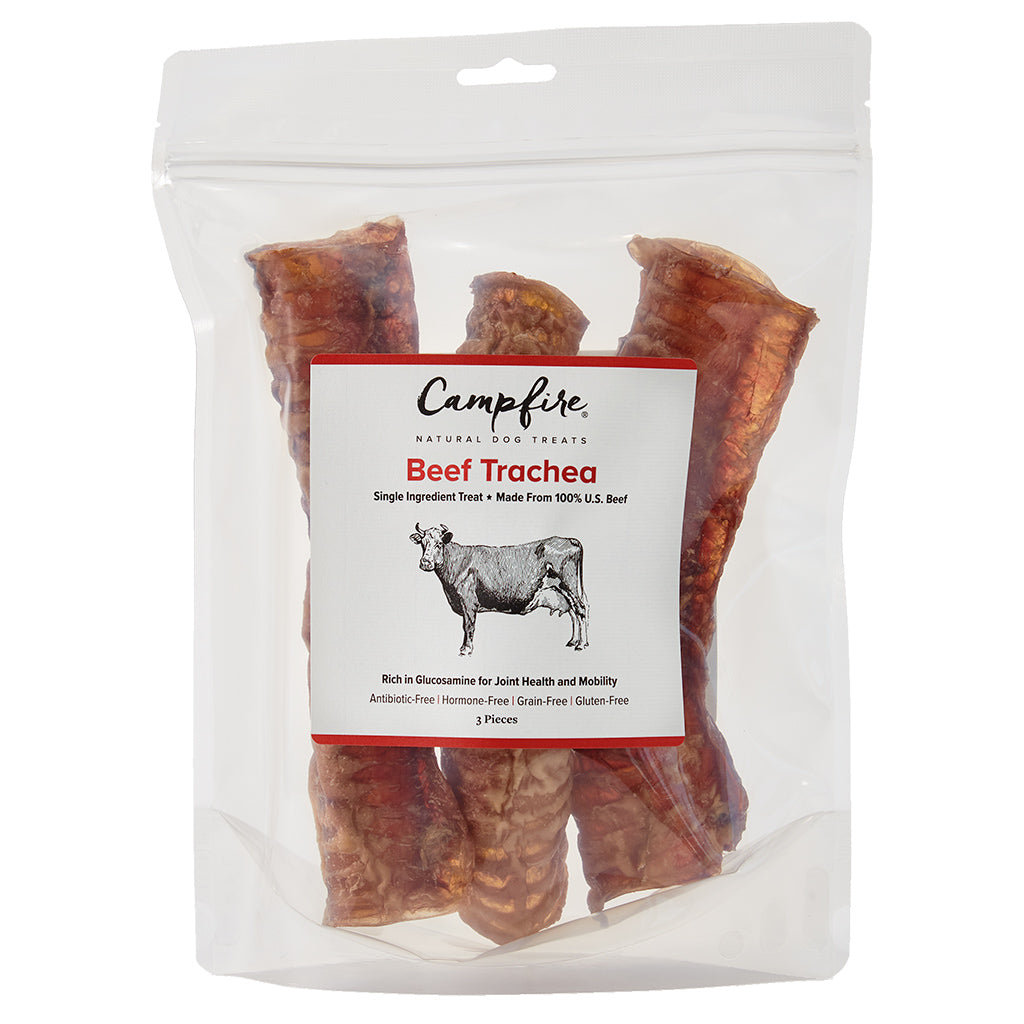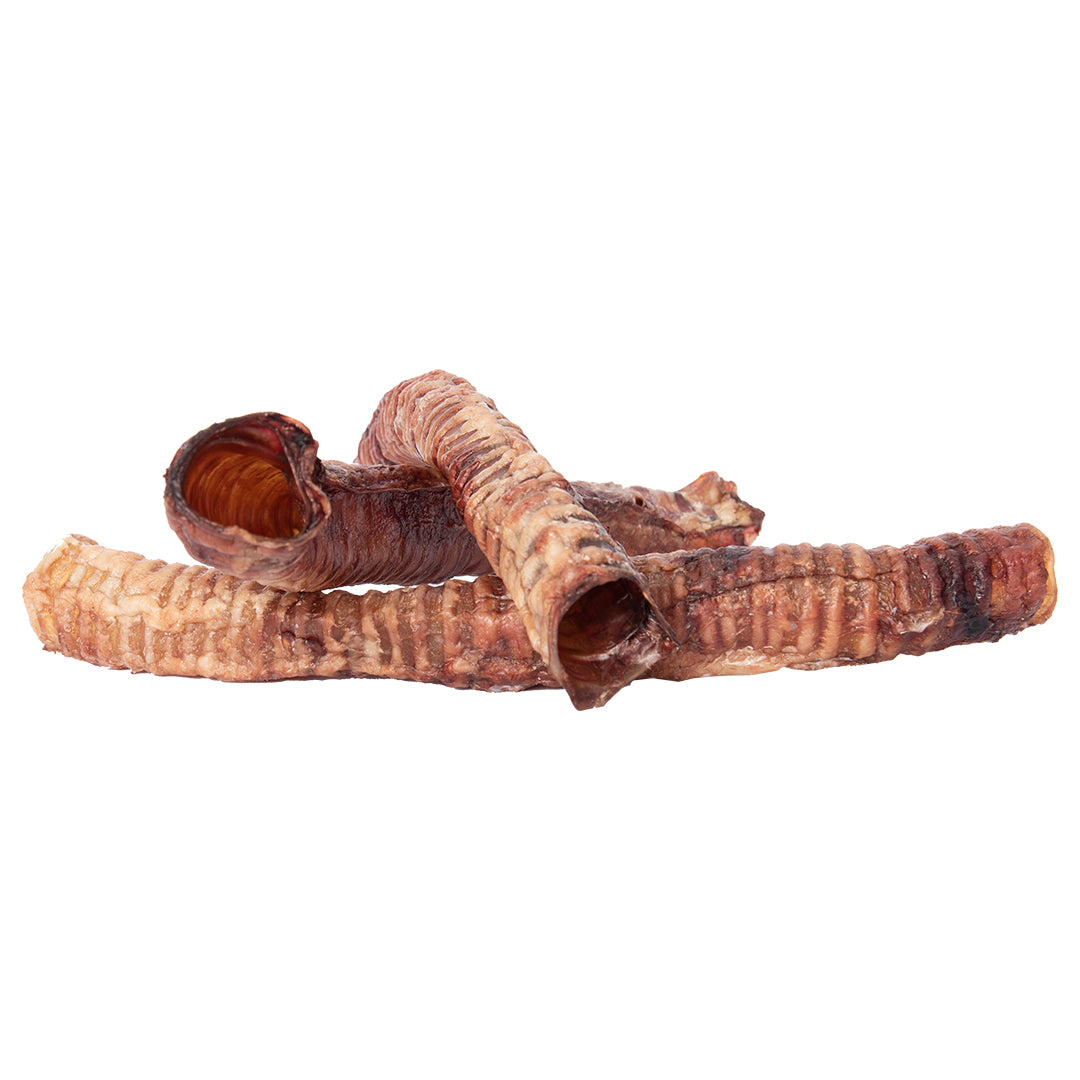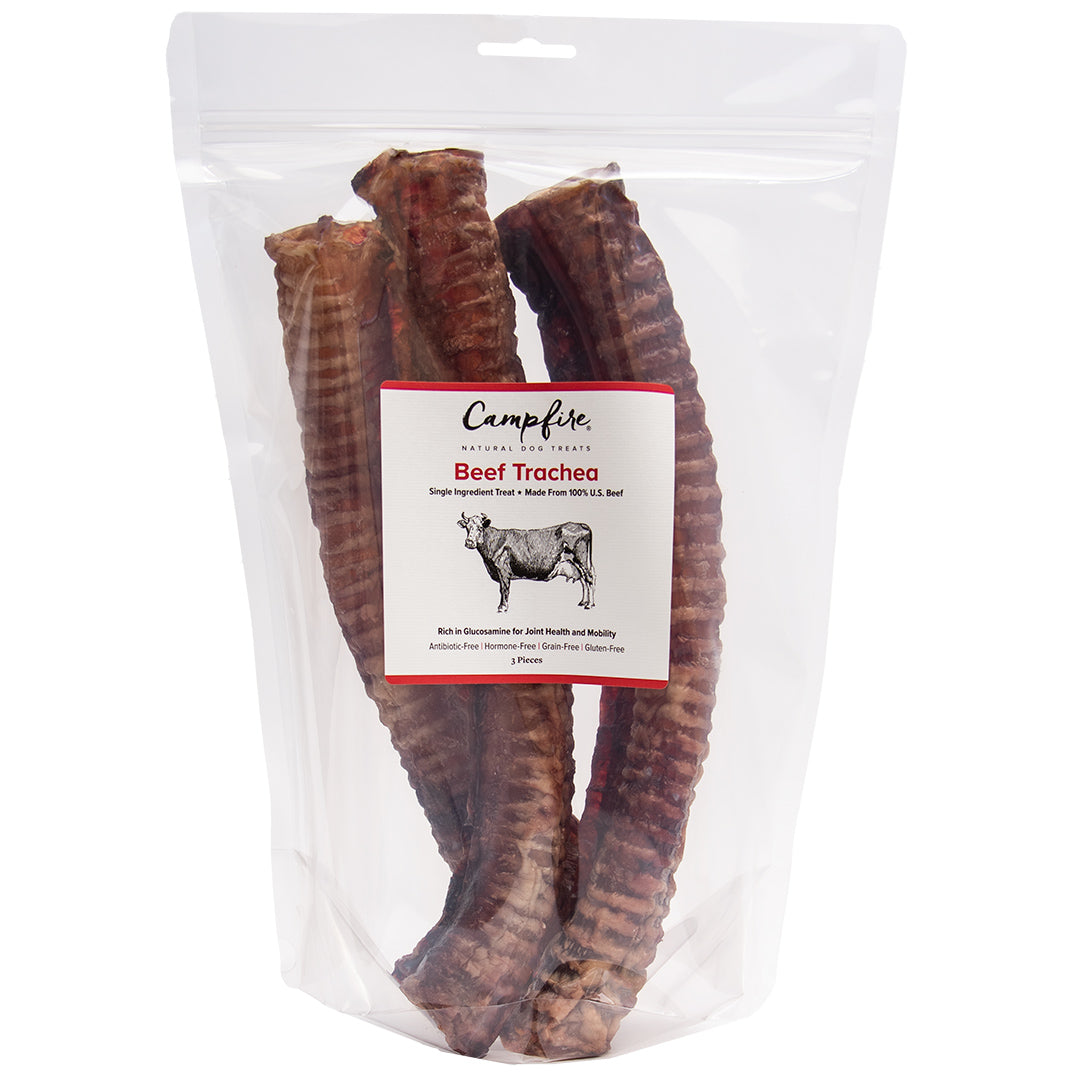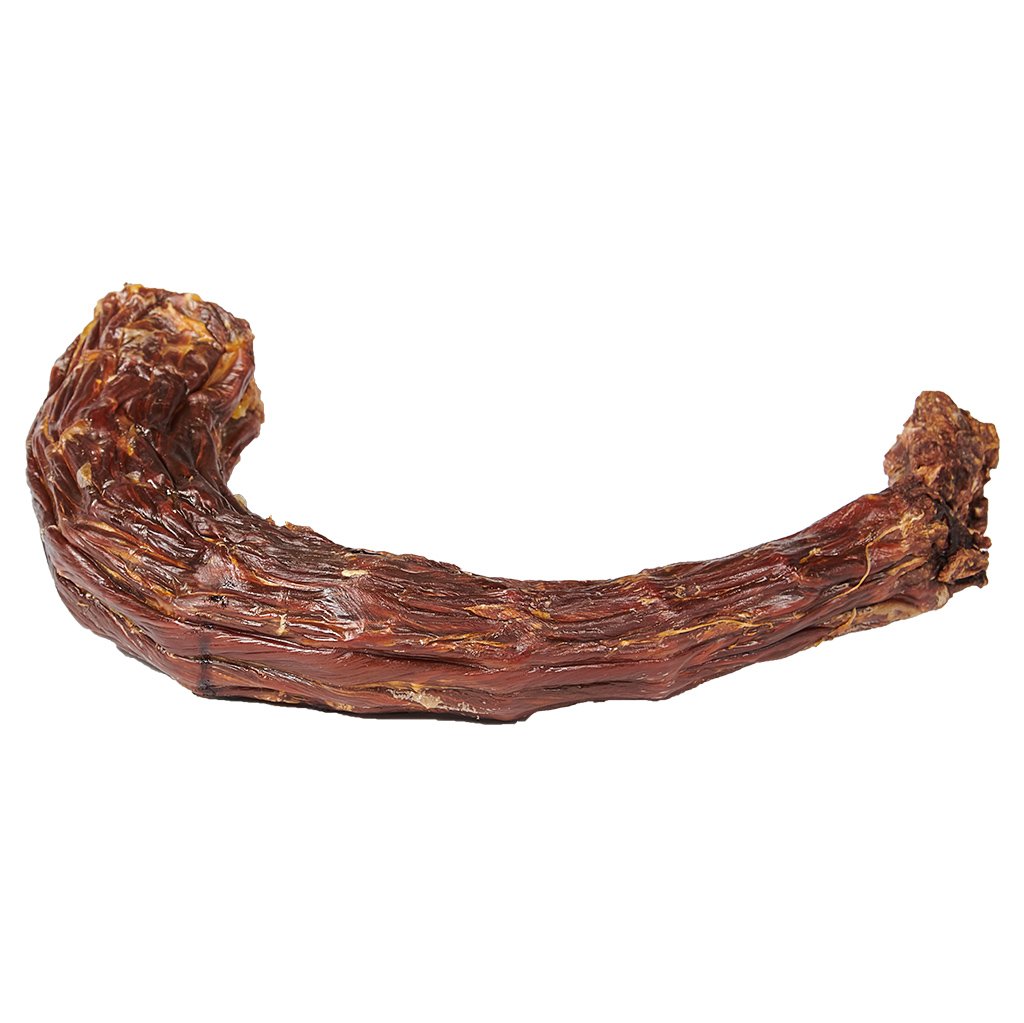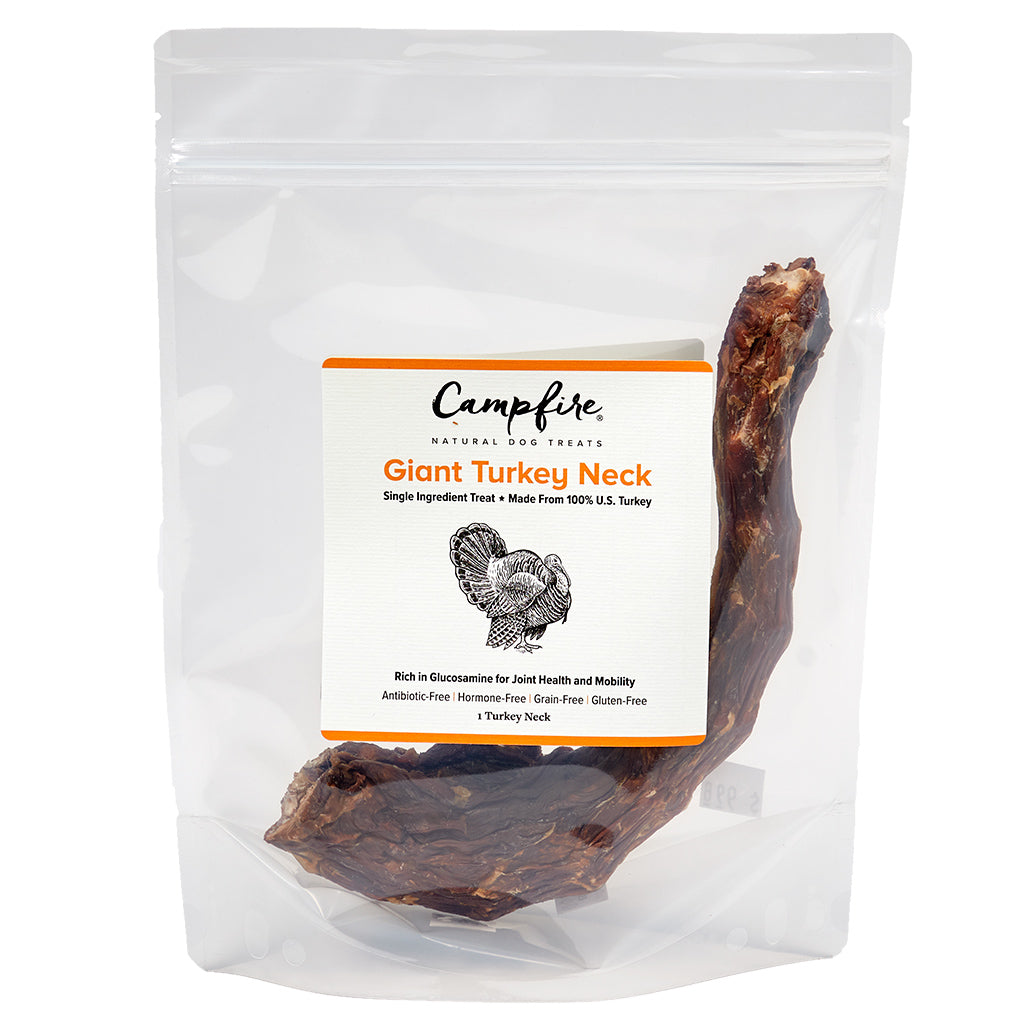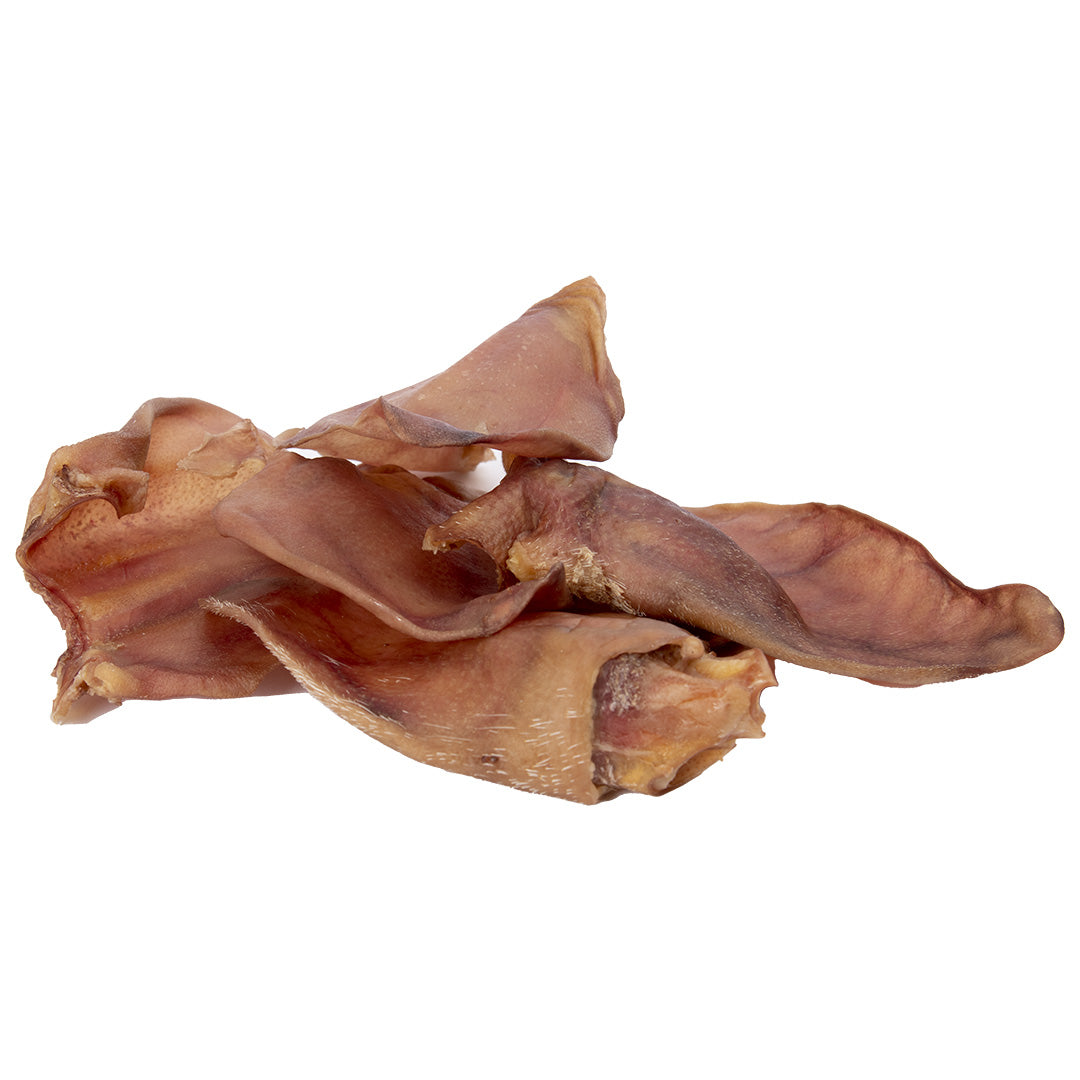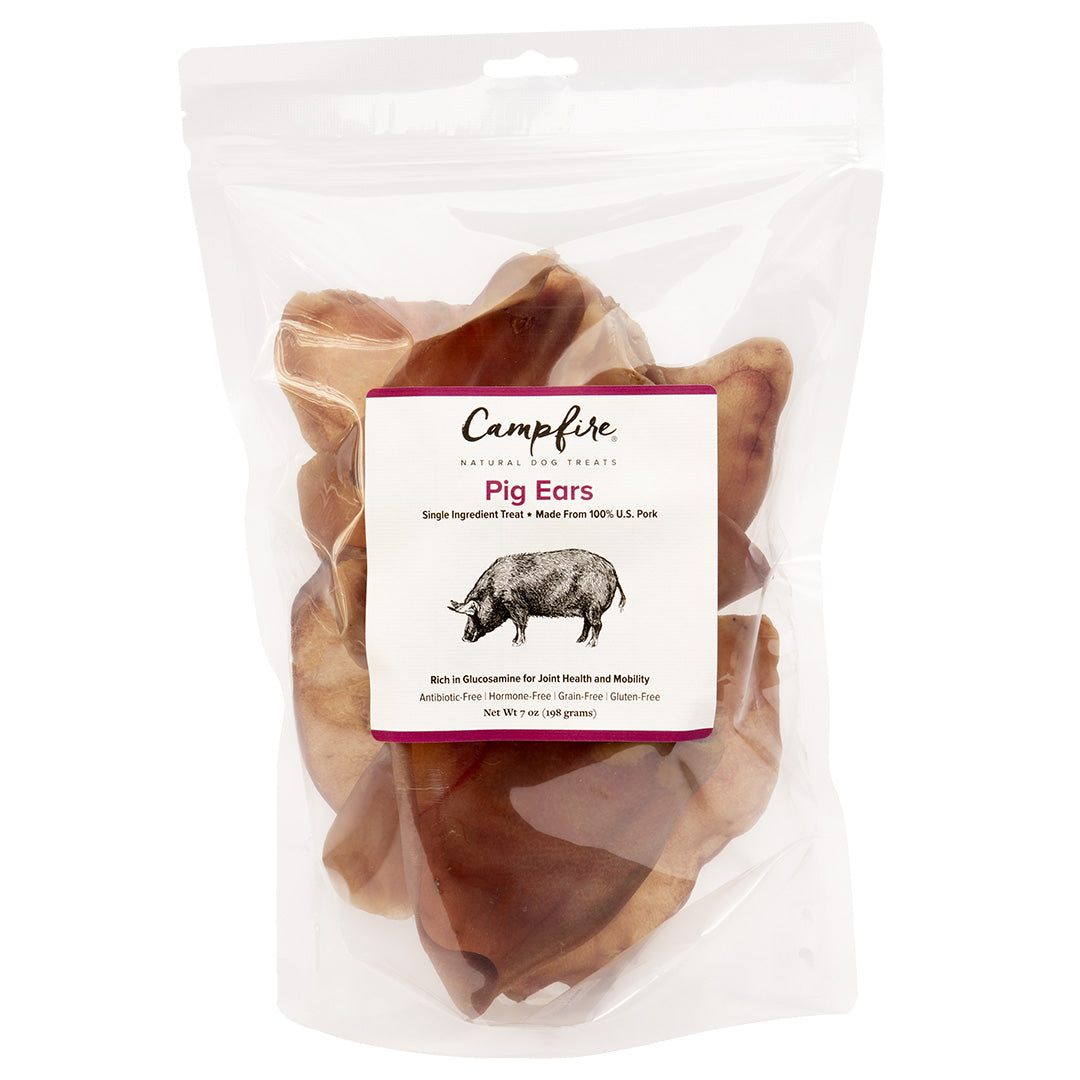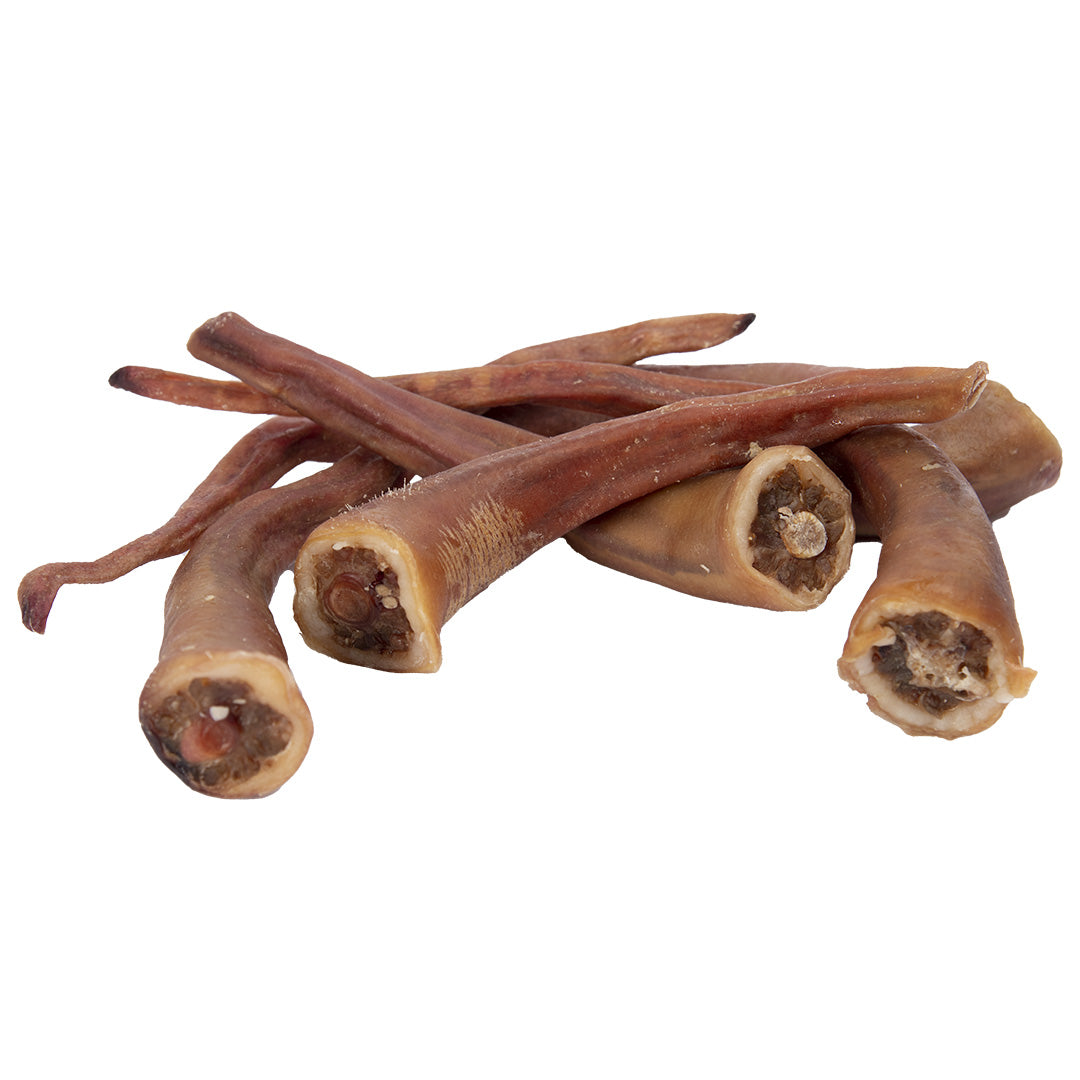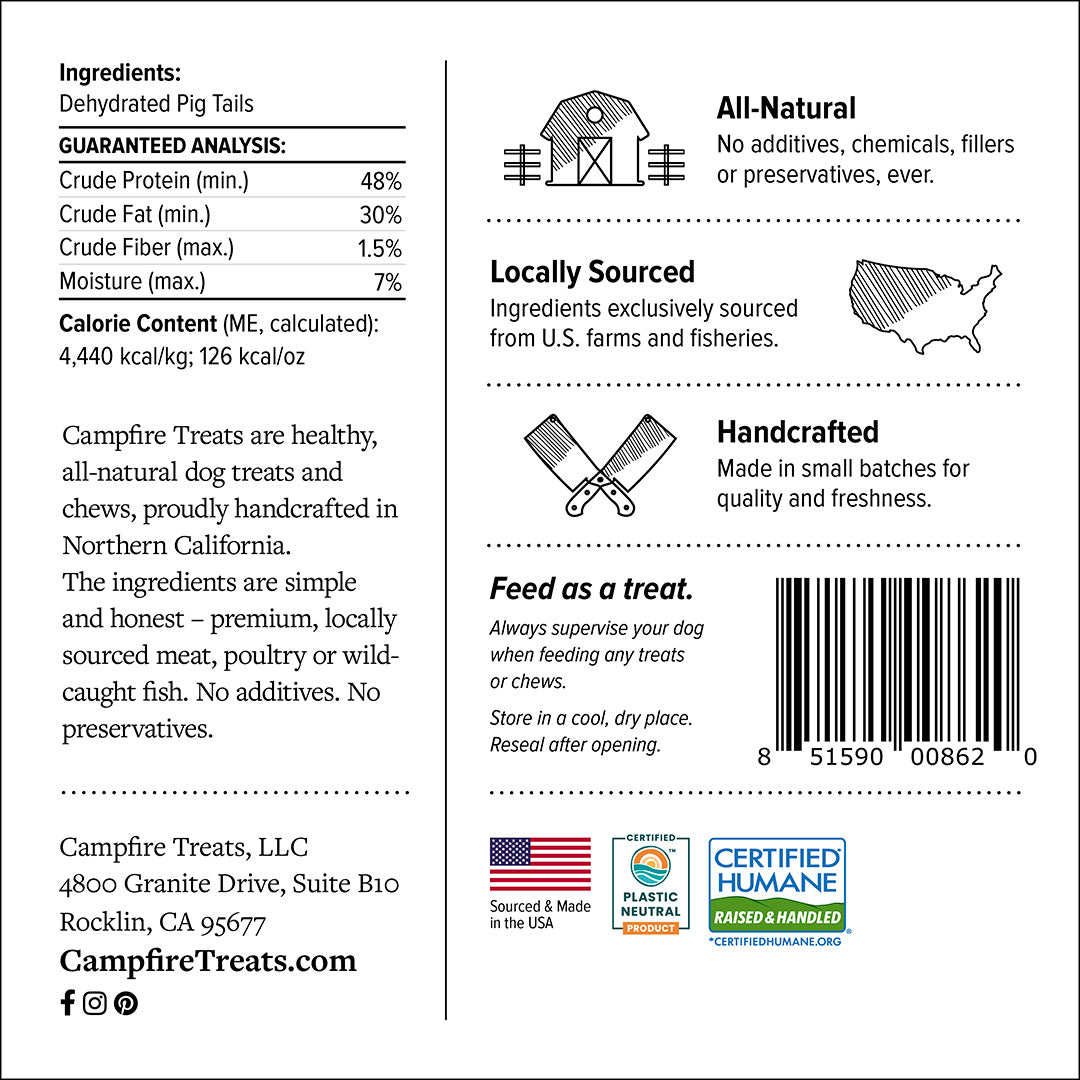Why we recommend giving your dog chews
For our dogs’ ancestors, chewing was a daily activity, as it helped them consume their food. Larger parts of meat, sinew, and bones were chewed into smaller pieces until they could be swallowed and digested.
Today, most dogs are fed with kibble, stir-up mixes, or other ready-made meals which can be licked up and swallowed without any (or just very little) chewing.
What many dog owners are not aware of is the fact that, aside from shredding meat and breaking food down, chewing plays an important role in a dog’s physical health and mental well-being.
Dental health
Chewing significantly contributes to the oral health of dogs. Gnawing on chews like chicken necks (for smaller dogs) or beef trachea tubes (for larger dogs) helps remove plaque and tartar build-up from teeth and keeps harmful bacteria in a dog’s mouth in check.
Clean teeth not only look good, but they’re also less prone to decay (cavities and caries). Eliminating bacteria in a dog’s mouth helps reduce gum inflammation, which, if left unchecked, leads to bone loss and loose teeth (periodontitis). Clean teeth and healthy gums also reduce, if not eliminate, bad breath.
In addition to healthy gums and teeth, strong jaw and neck muscles also contribute to a dog’s dental health. Well-developed muscles ensure the jaw is kept in the proper position and that enough force is applied during chewing. These muscles are best trained by giving your dog chews regularly (ideally several times per week).
Safe, all-natural chews are also great for teething puppies. During the weeks when puppies are losing baby teeth and their permanent teeth are breaking through the gums, most dogs have a strong urge to chew to ease their discomfort. The best dental chews for puppies are, from our experience, relatively large, medium-hard chews like long and thin bully sticks or pig ears. What makes them great for teething puppies is that they are large enough not to get accidentally swallowed (puppies are inexperienced chewers), and soft enough not to damage their teeth.
Mental health
Chewing is a physical activity that dogs find positive and rewarding. The physical act of chewing combined with the sensory experience of tasting its flavor, relieves stress and has a relaxing effect on dogs. Especially long-lasting dog chews are sometimes even referred to as dog calming chews.
Joint health and mobility
Many of our dog chews are also naturally rich in glucosamine and chondroitin. These two substances, naturally present in cartilage and connective tissue, are known to support canine joint health and mobility. Giving chicken feet, pig ears, or beef trachea as chews to your dog will therefore act as a natural hip and joint medicine.
How to select healthy and safe dog chews
Our single most important piece of advice when selecting dog chews? Be critical. Not every chew on the market is safe. Not every chew is healthy. Just because a chew is shaped like a toothbrush doesn’t mean they are automatically the best dental chew for dogs. And, of course, a perfect chew for one dog might be the wrong choice for another. Just picture a Chihuahua and a Great Dane.
The best dog chews are the ones that are right for your dog(s). We recommend considering the following criteria when selecting chews for your dog:
- What are the chews made of? Are they made of just one single, all-natural ingredient (for example, 100% meat)? Or do they contain a long list of ingredients that sound like reading from your high school chemistry textbook?
- How hard are the chews?
- Where are the chews made? Right here in America, or do they come from countries with problematic food safety issues like India or China?
- How big is your dog?
- How old is your dog?
- What physical condition is your dog in? Are there any health issues to be considered (allergies, missing teeth, etc.)?
- What is your dog’s chewing style? If your dog tries to swallow every piece of food immediately, no matter the size, pick a chew that is larger than your dog’s head to be on the safe side. If your dog is a gentle and patient chewer, smaller chews might be perfectly fine.
We also recommend avoiding the following chews:
Cooked or baked bones
Cooking bones at high temperatures alters their molecular structure, making them extremely hard, splintery, and usually indigestible. These bones can cause chipped or broken teeth and other injuries in your dog’s mouth, throat, or digestive system. Cooked poultry bones are especially likely to break into pointy shards and should never be given to a dog.
Elk antlers or load-bearing bones of large animals
Elk antlers and other load-bearing bones of large animals (such as cattle femur bones) are also extremely hard chews for a dog. They, too, might cause chipped or broken teeth.
To assess if your dog is at risk, it’s important to know their innate chewing style. A gentle chewer, which might just playfully nibble on a hard chew, is most likely not at risk at all. On the other hand, a larger dog with a more aggressive chewing style could grind down an elk antler or a femur bone over time, and is at a much higher risk of breaking and consequently losing a tooth.
Dog chews made of plastic or rubber
Plastic bones for dogs and dog chew toys seem to be an ideal choice (at least at first glance). They’re relatively inexpensive, long-lasting, and not stinky. Not surprisingly, they are popular among many dog owners. Because of the long list of benefits and the often misleading marketing claims of the companies making these chews, many dog owners forget that plastic is not food. The company Benebone, for example, boldly advertises that their nylon chew bones for dogs contain “real bacon”, while the fine print advises that it should not be eaten.
Almost all plastic dog chews are made of plastic that contains mineral oils, chemicals, or other additives, which cannot be considered food-safe by any standard. In addition, there is the risk of small plastic particles that a dog ingests when chewing. Recent research indicates there is a high likelihood that ingesting these microplastic particles might cause cancer.
Dog treats made in countries with a history of food safety issues
Many dog chews sold in the United States are made in China and India. Unfortunately, these two countries also have a questionable track record in food safety. Pet chews from China, for example, have been directly linked to thousands of pet illnesses and deaths. We therefore recommend erring on the side of caution and buying dog chews that are made in the USA from locally sourced ingredients.
How to safely feed chews to your dog
No matter the type of chew, there is always the possibility that a part of a chew could become stuck between the teeth or elsewhere in the mouth or throat of a dog. We therefore recommend always supervising a dog when giving any chews. This way, you are available to help if needed.
We also recommend removing smaller pieces of chews, which may pose a potential choking hazard. Alternatively, you could hold these smaller pieces in your hand and let your dog continue chewing them until they are small enough to be safely swallowed.
Join the Campfire Treats Family
and get access to news and special promotions.

